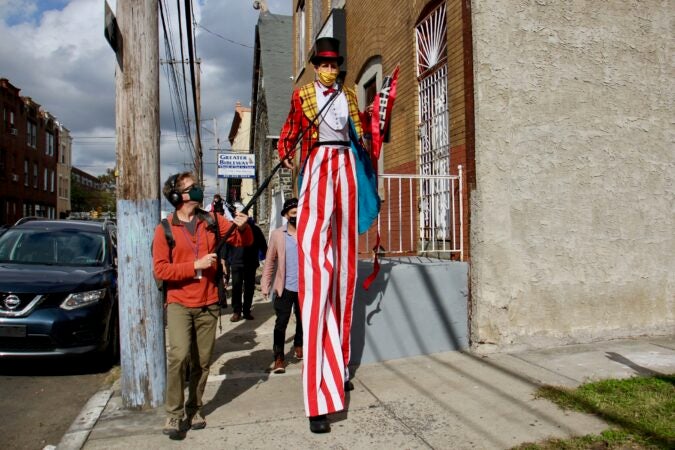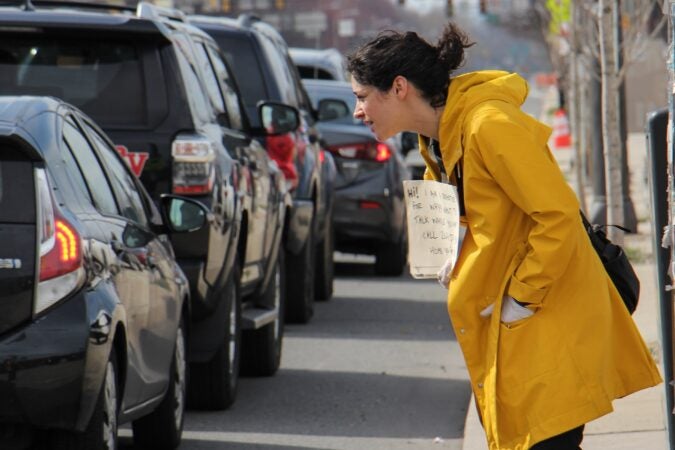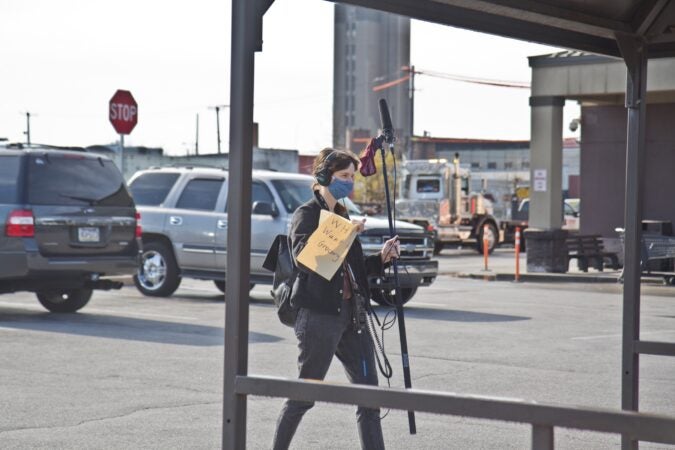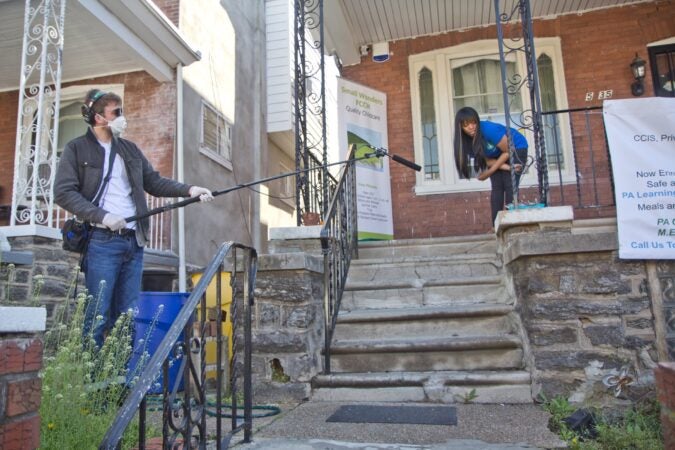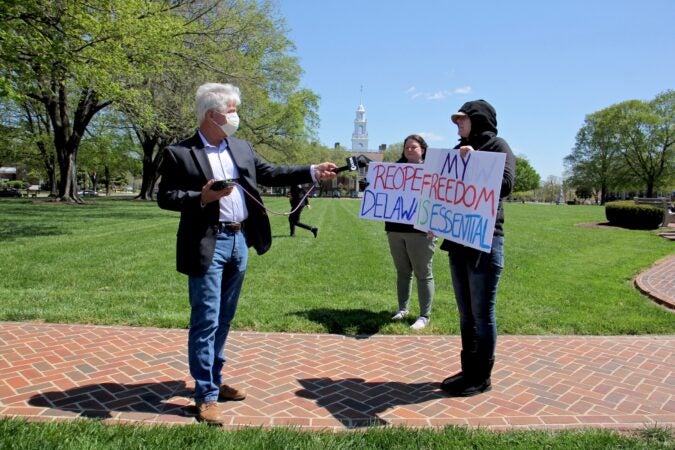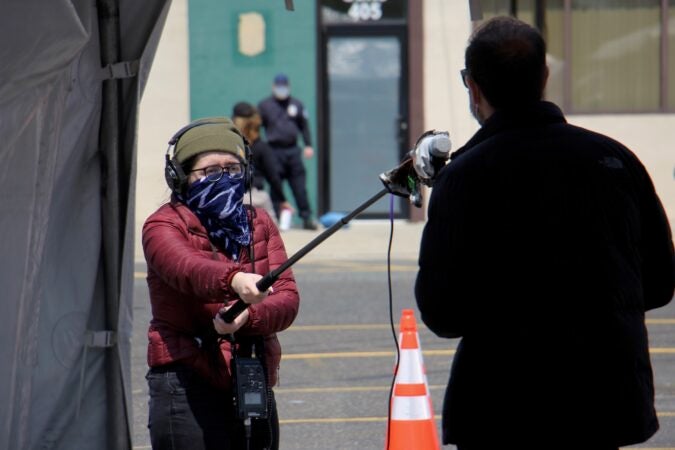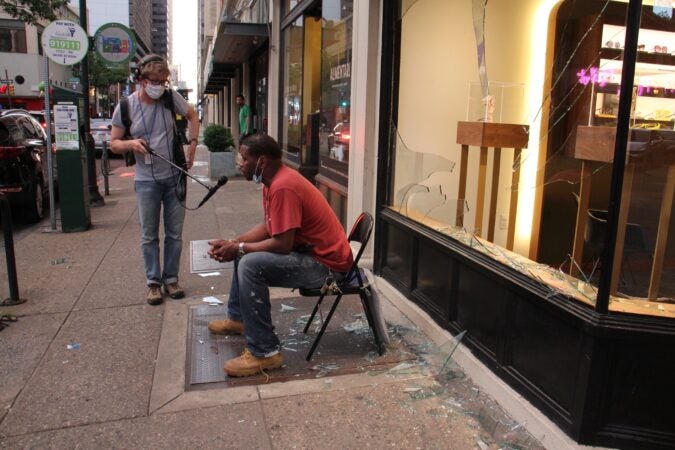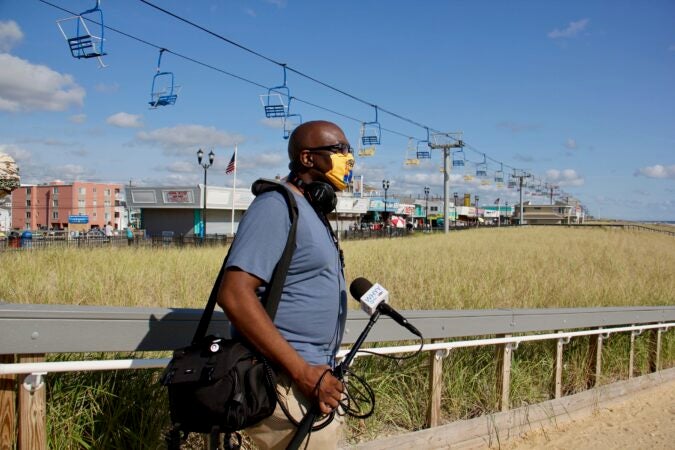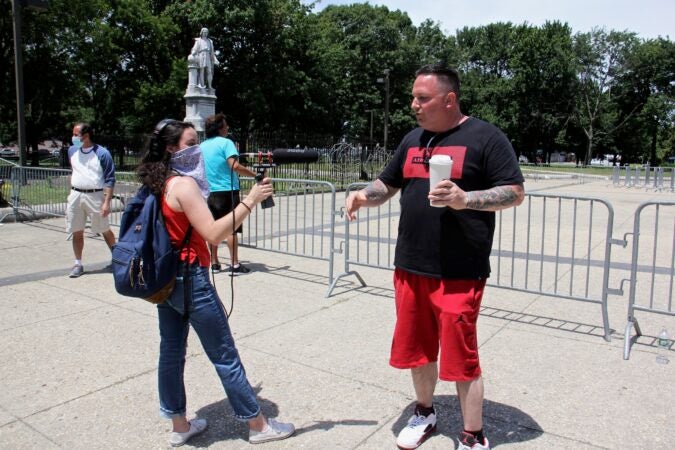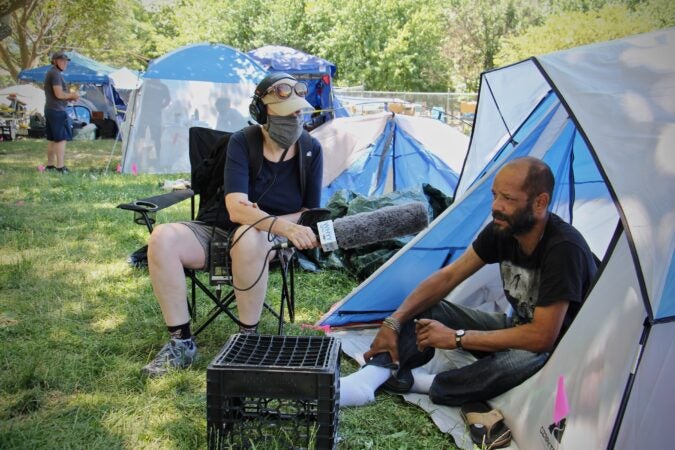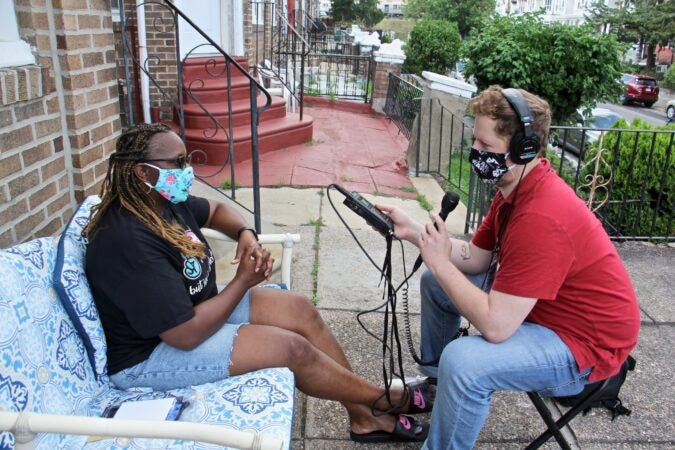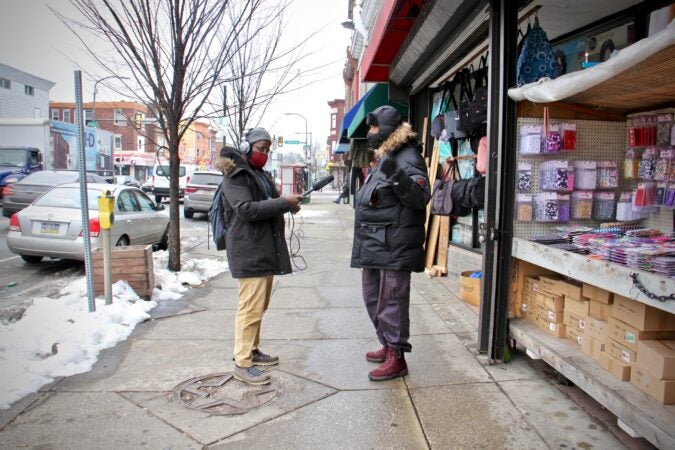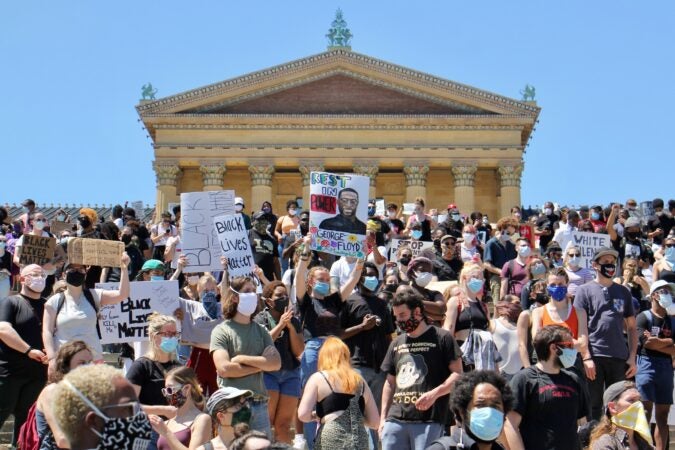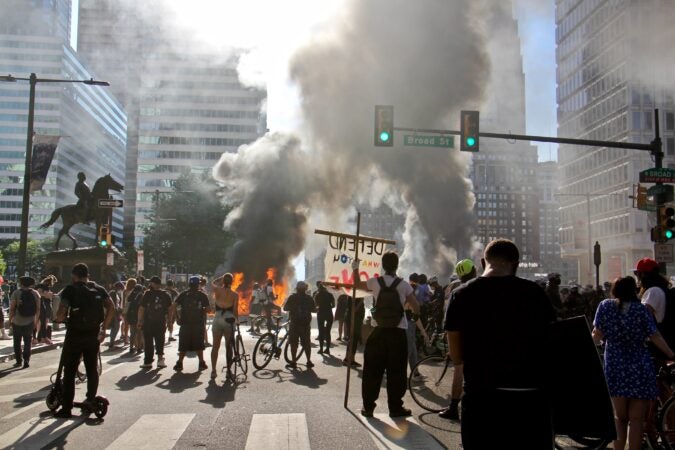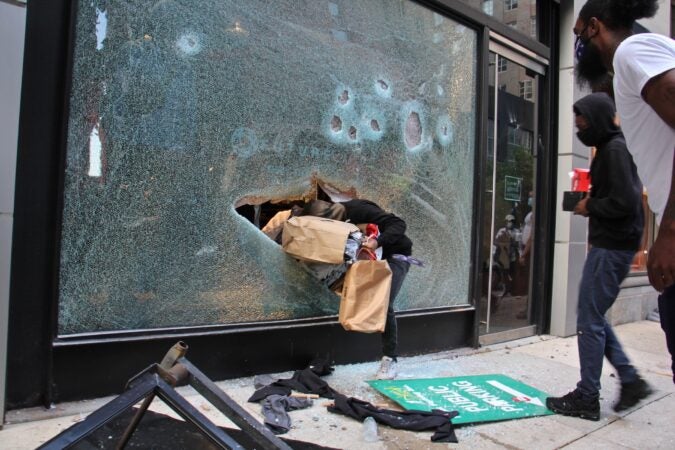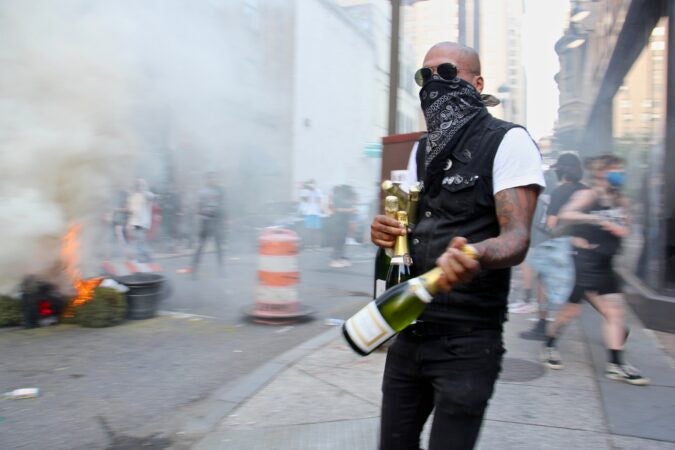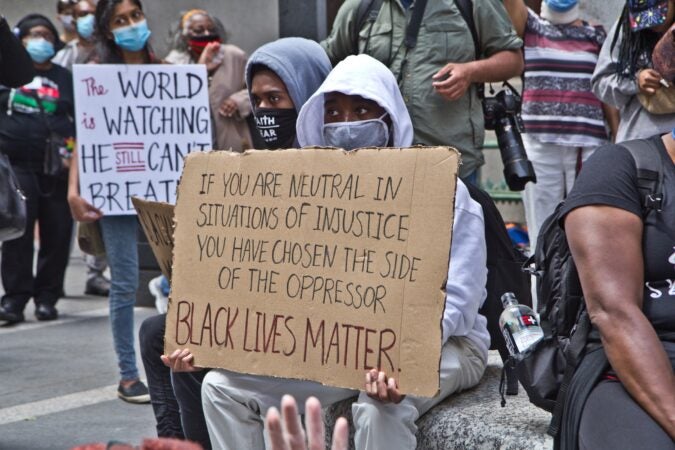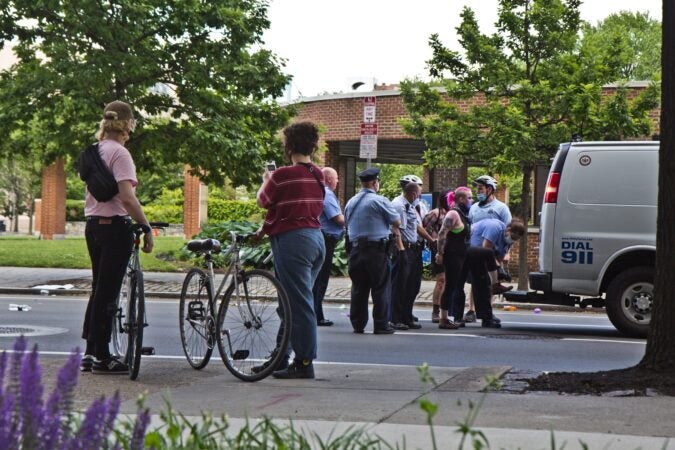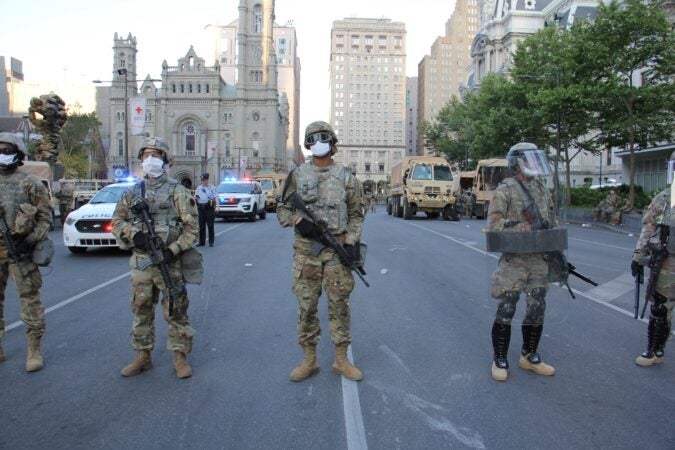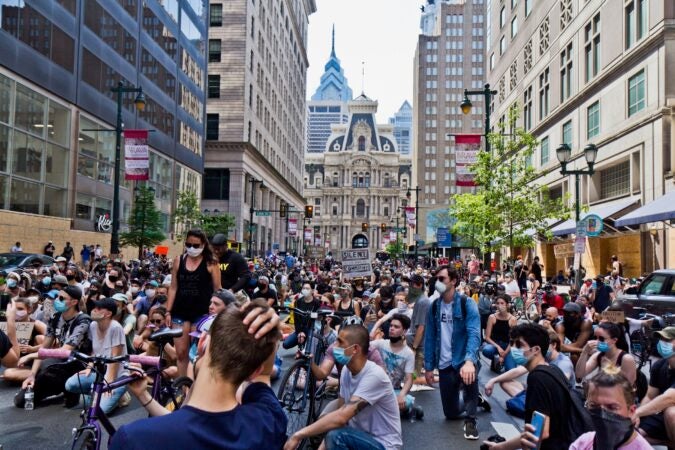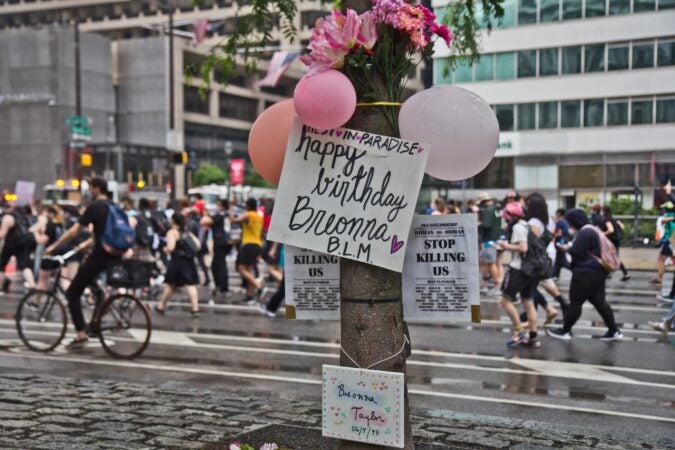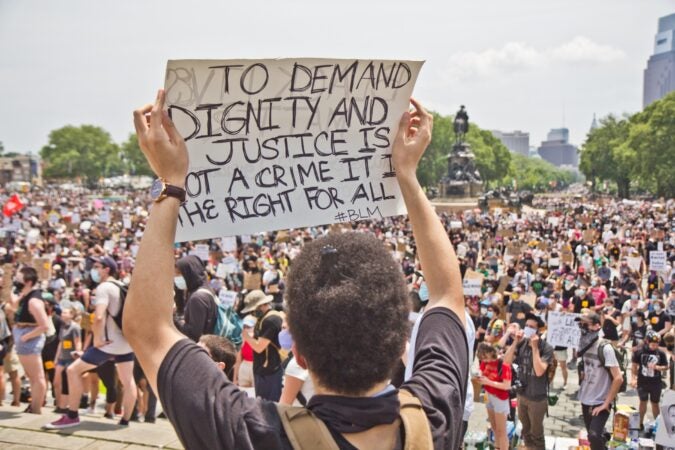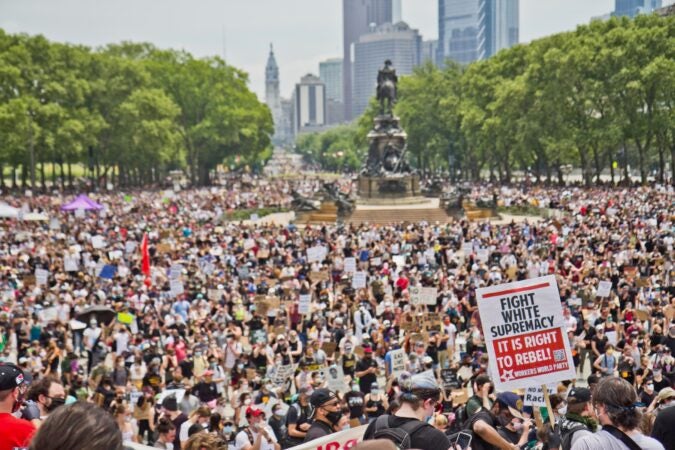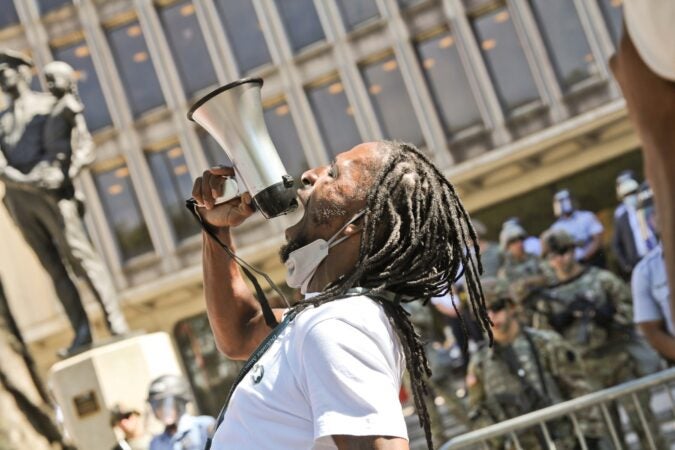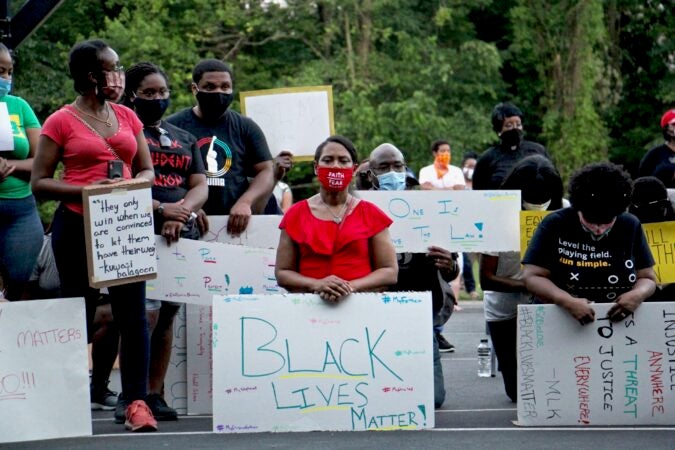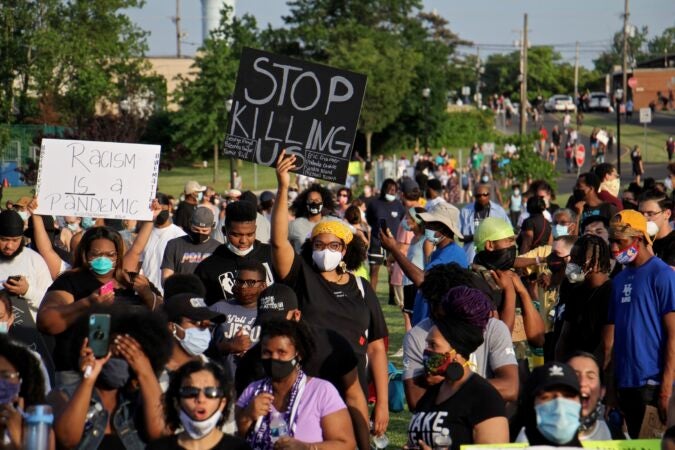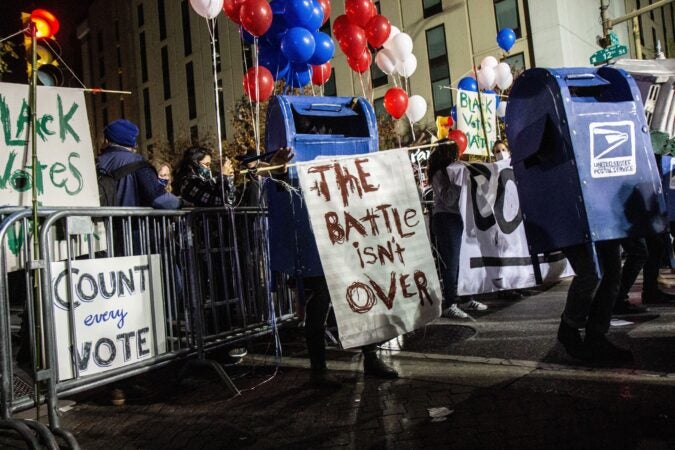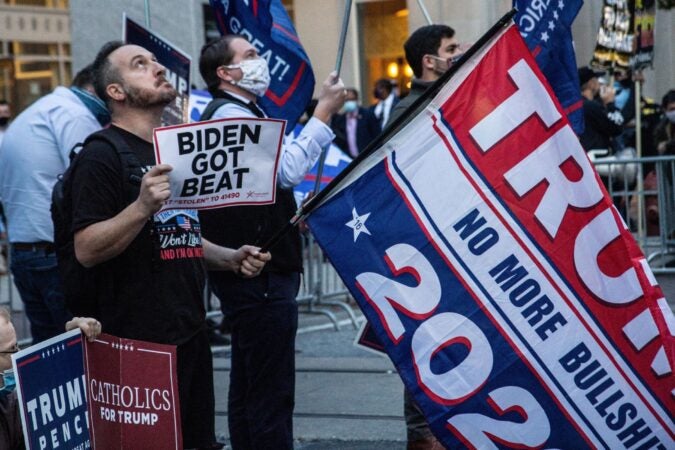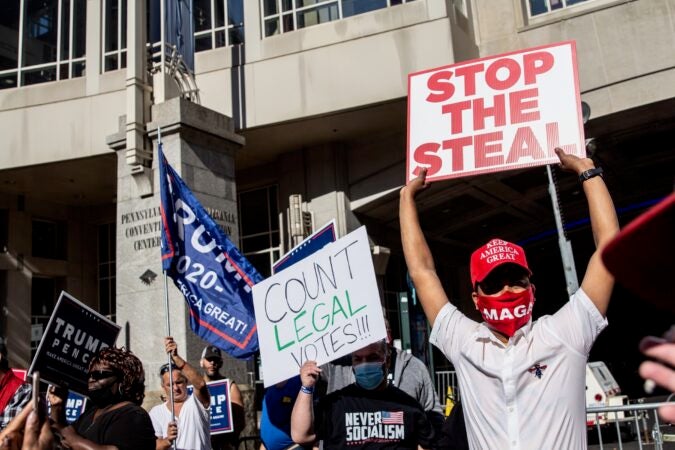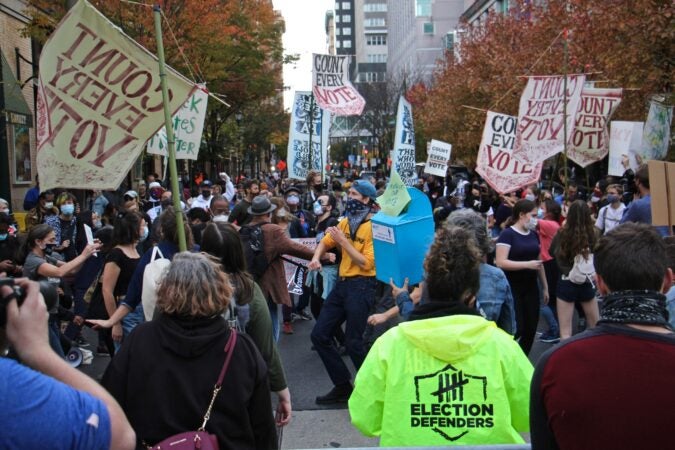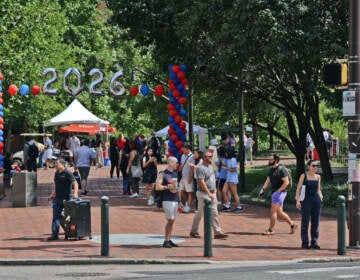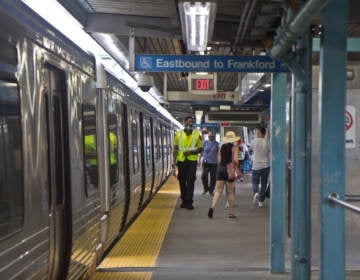Photos from 2020: Looking back on a year that changed our world
2020 was not a typical year for anyone in the region. Here's a view from WHYY photographers on how the last 12 months unfolded in real time.
2020 was not a typical year for anyone in the region. Here’s a view from WHYY photographers on how the last 12 months unfolded in real-time.
Hundreds of New Jerseyans began 2020 with a bracing dip in the frigid Atlantic Ocean. Participants described the polar bear plunge, a longstanding tradition in shore communities, as an exhilarating start to the new year.
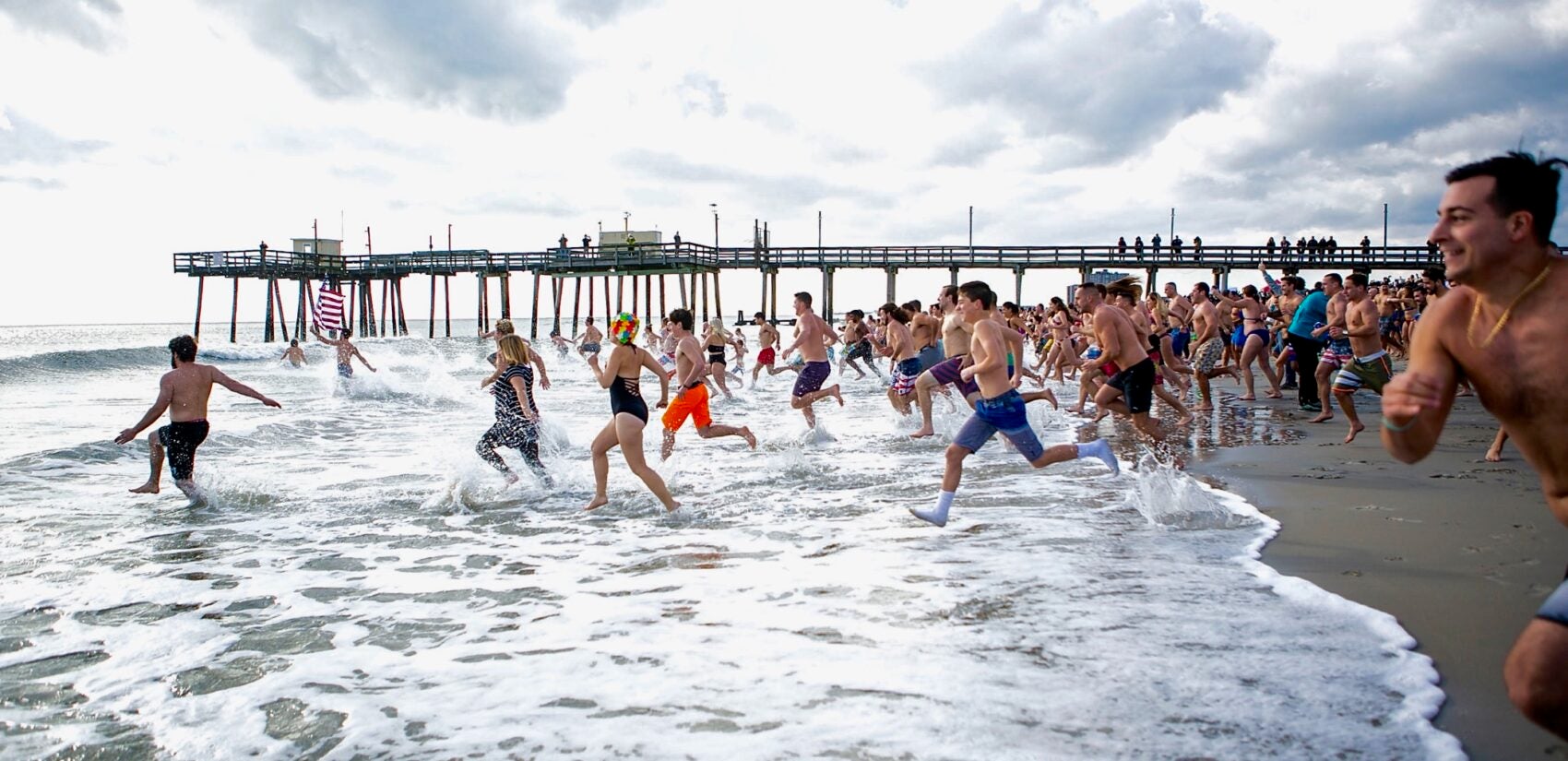
In January, the presidential primary came to the Philadelphia area. The organization Black Voices for Trump held a meeting at a church in Sharswood. Donald Trump drew thousands to a rally in Wildwood, Democratic candidate Mike Bloomberg parachuted into the race with a rally at the National Constitution Center, where supporters expressed the belief that he was the only candidate who could beat Trump.

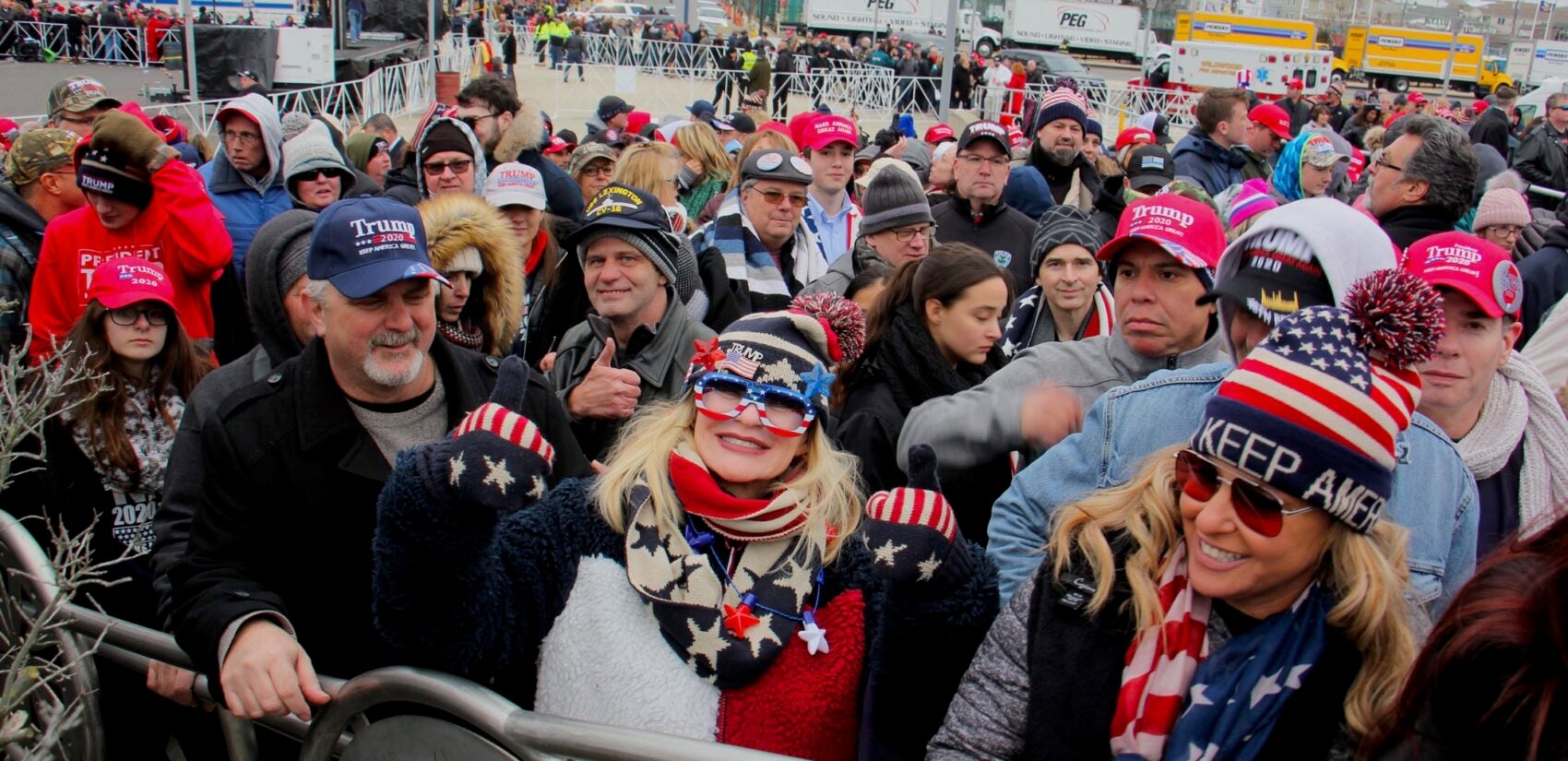
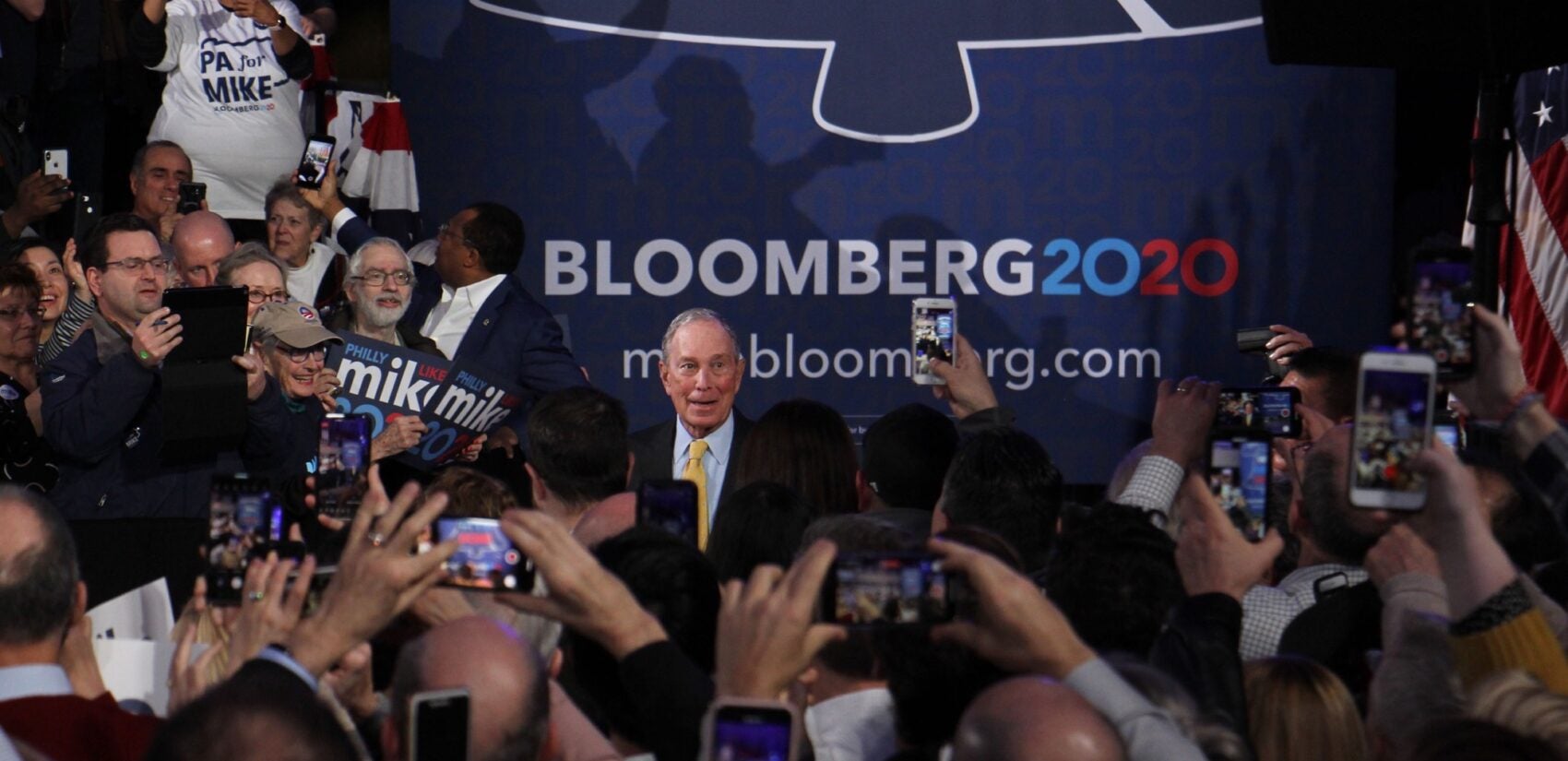
On Jan. 26, hometown hero Kobe Bryant was killed in a helicopter crash. The basketball star was born in Philadelphia and started his basketball career at Lower Merion High School.
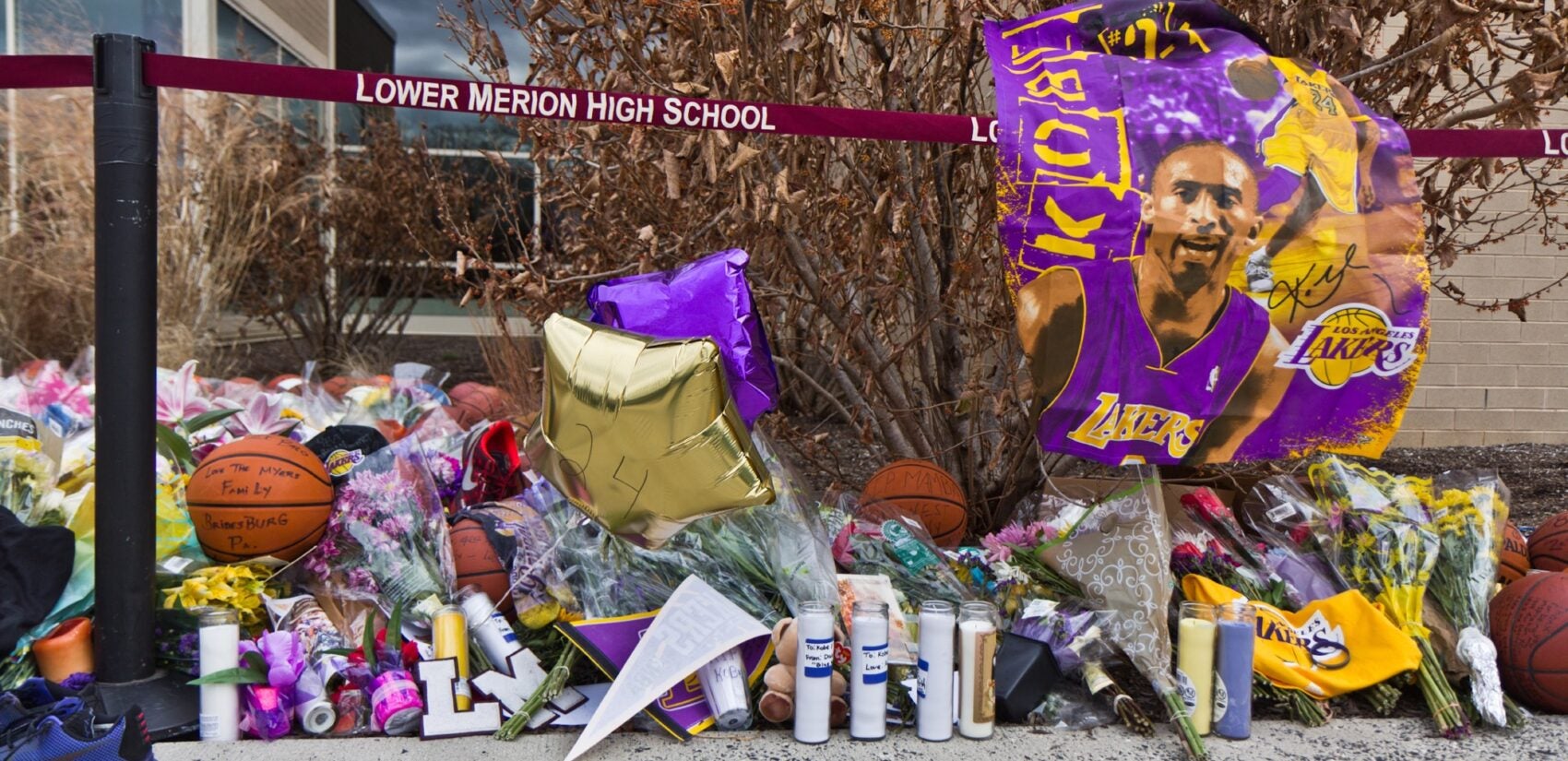
In February, Danielle Outlaw made history becoming Philadelphia’s first Black female police commissioner.
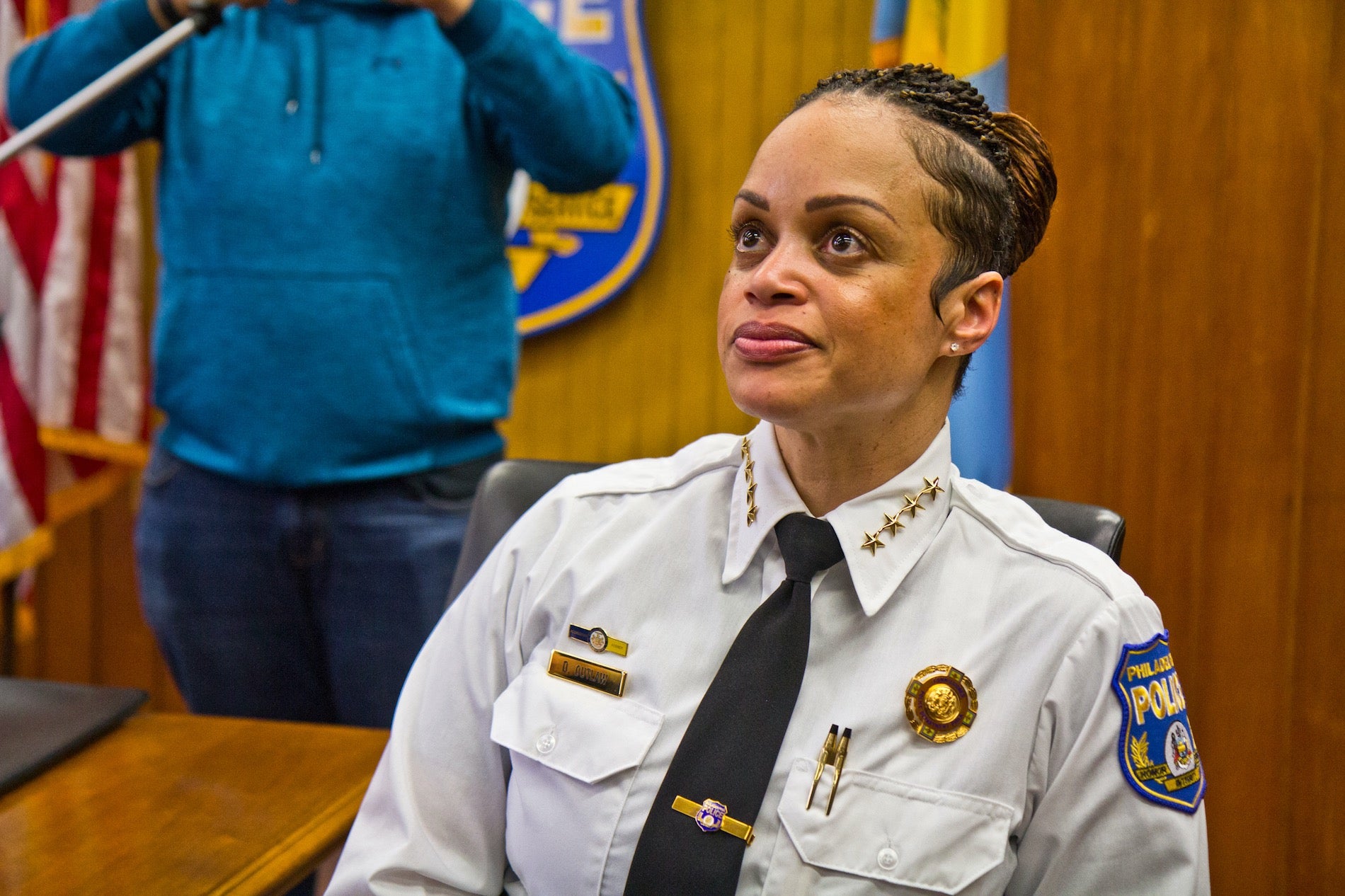
She joined an impressive roster of Black women in law enforcement in Philadelphia.
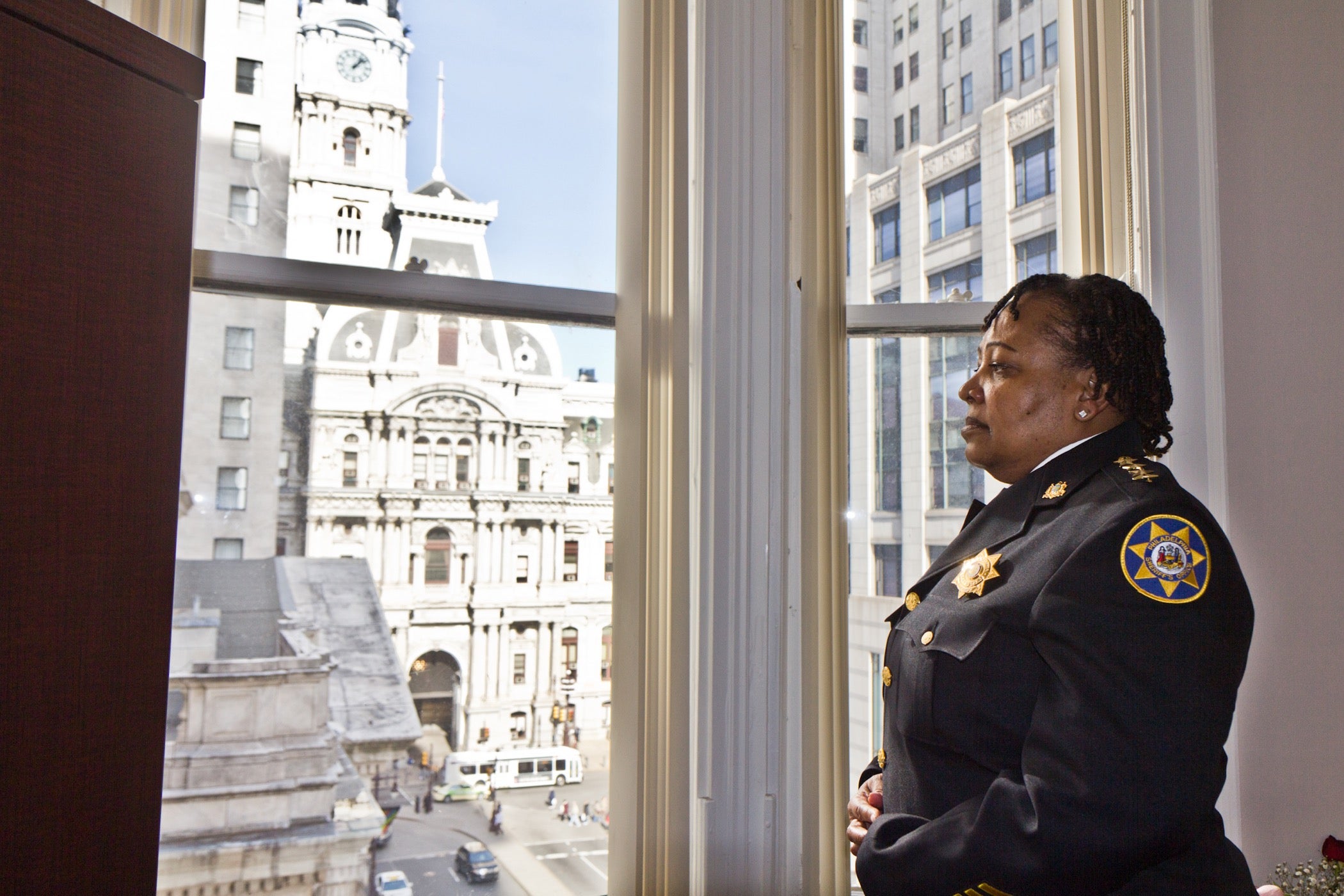
In March, advocates for a supervised injection site in Philadelphia pushed back against a City Council bill that would effectively prevent it. The issue was sidelined as the coronavirus pandemic reached the Philadelphia area.
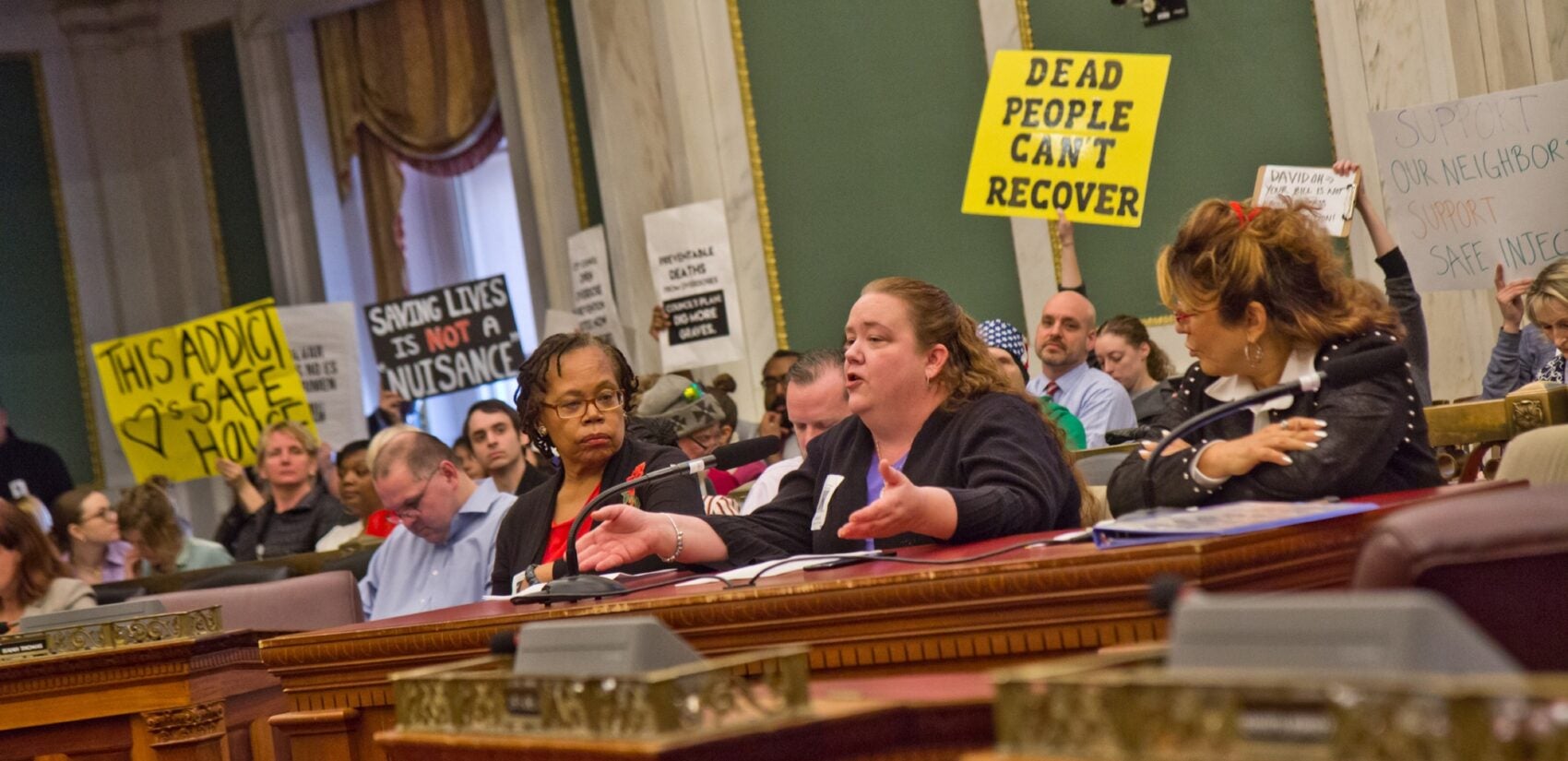
Coronavirus pandemic hits the region
Health officials told residents to stay home except for essential business. Restaurants, stores, and schools were shuttered.
Those engaged in essential activities were urged to wear masks and physically distance themselves from others.
City streets were deserted.
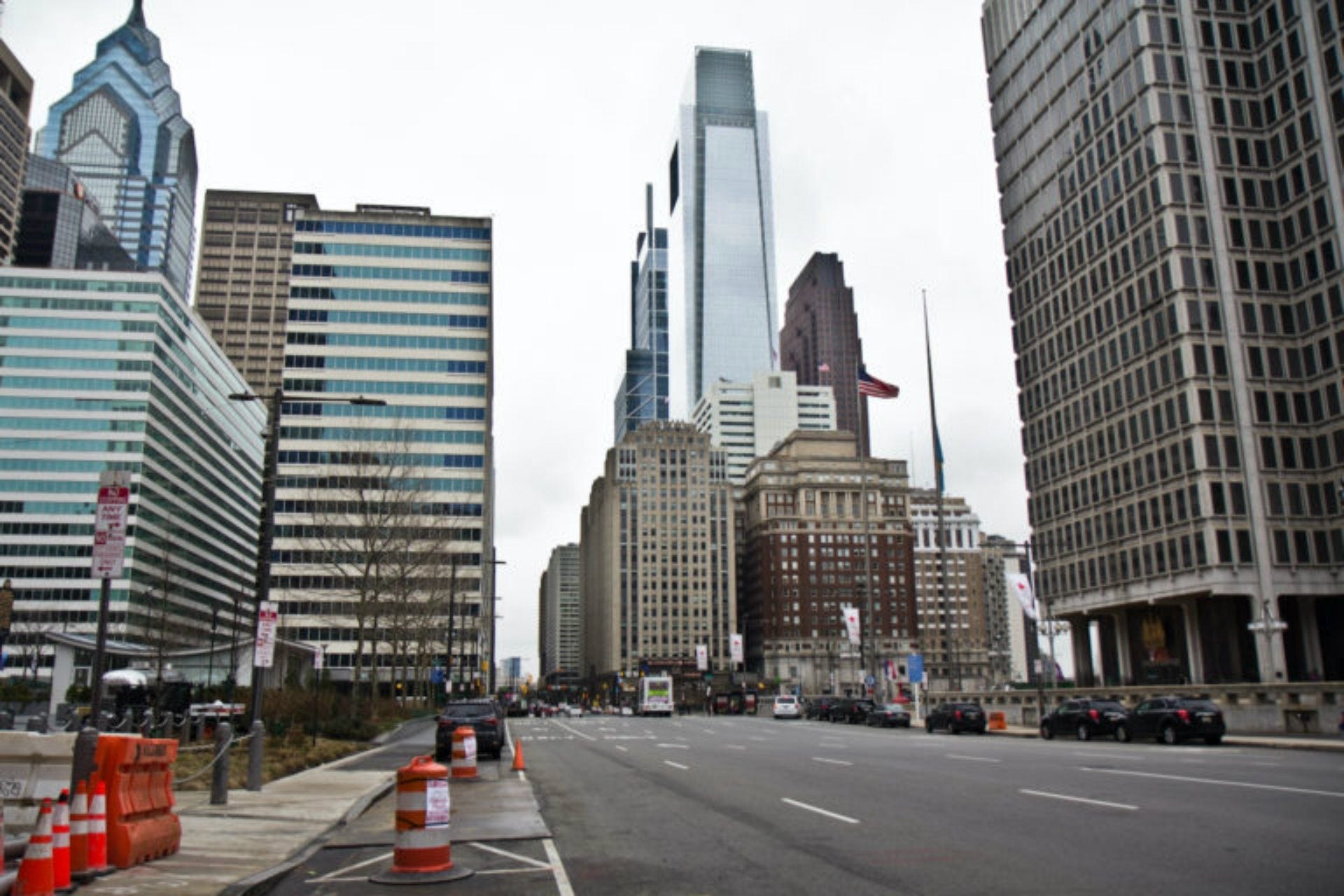
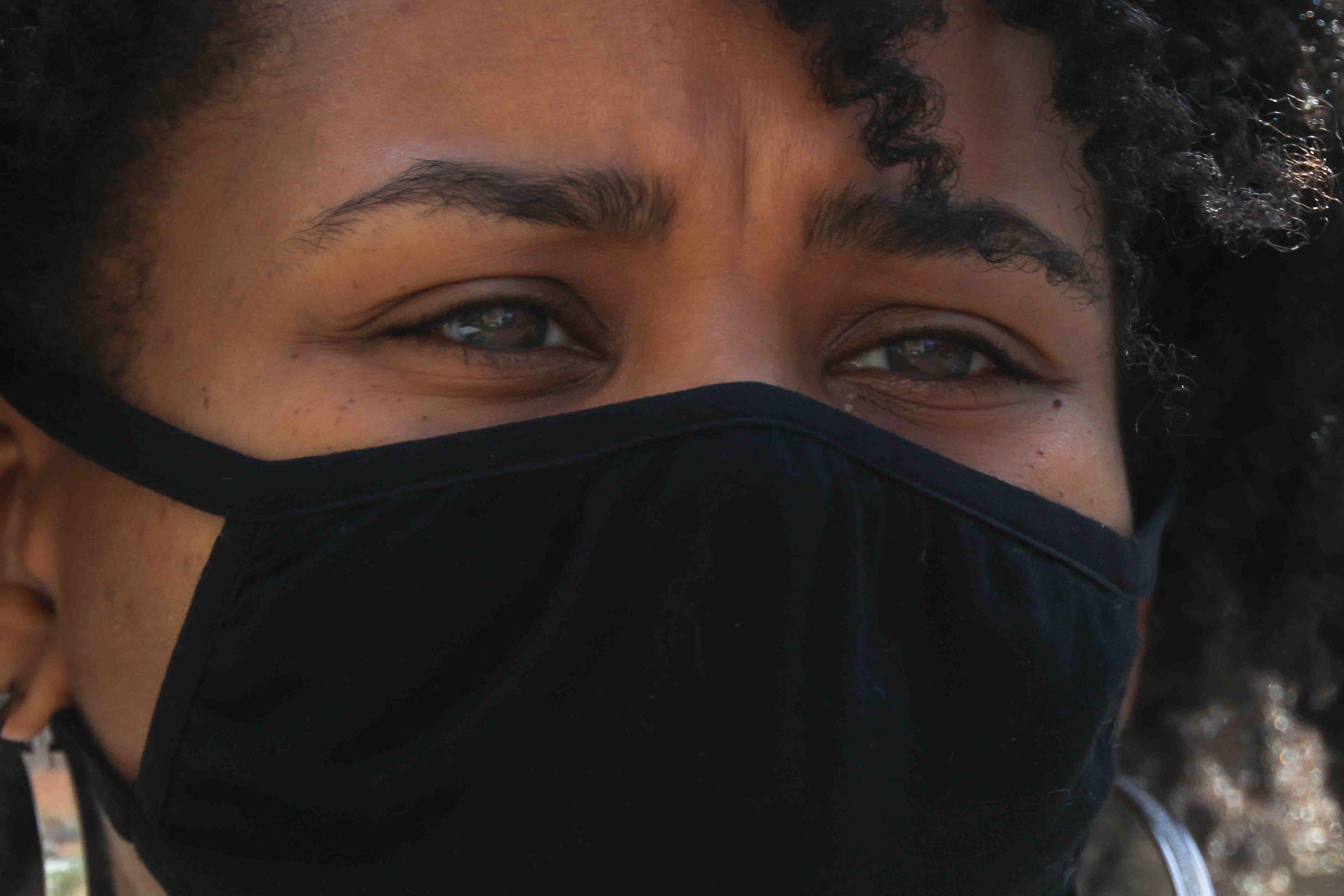
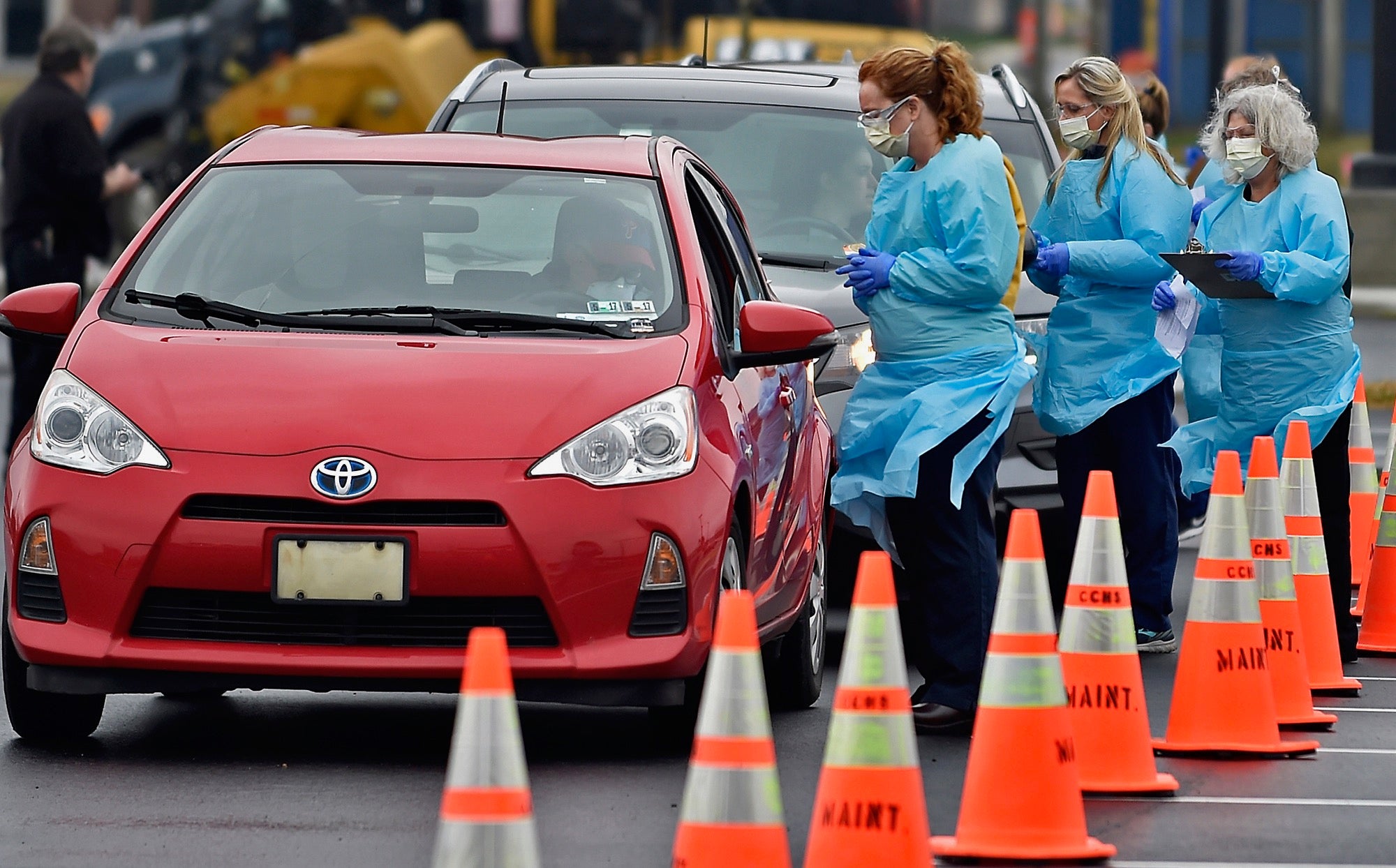
Drive-thru testing sites were opened, including one at Citizens Bank Park in Philadelphia. Hundreds of cars lined up around the sports complex.
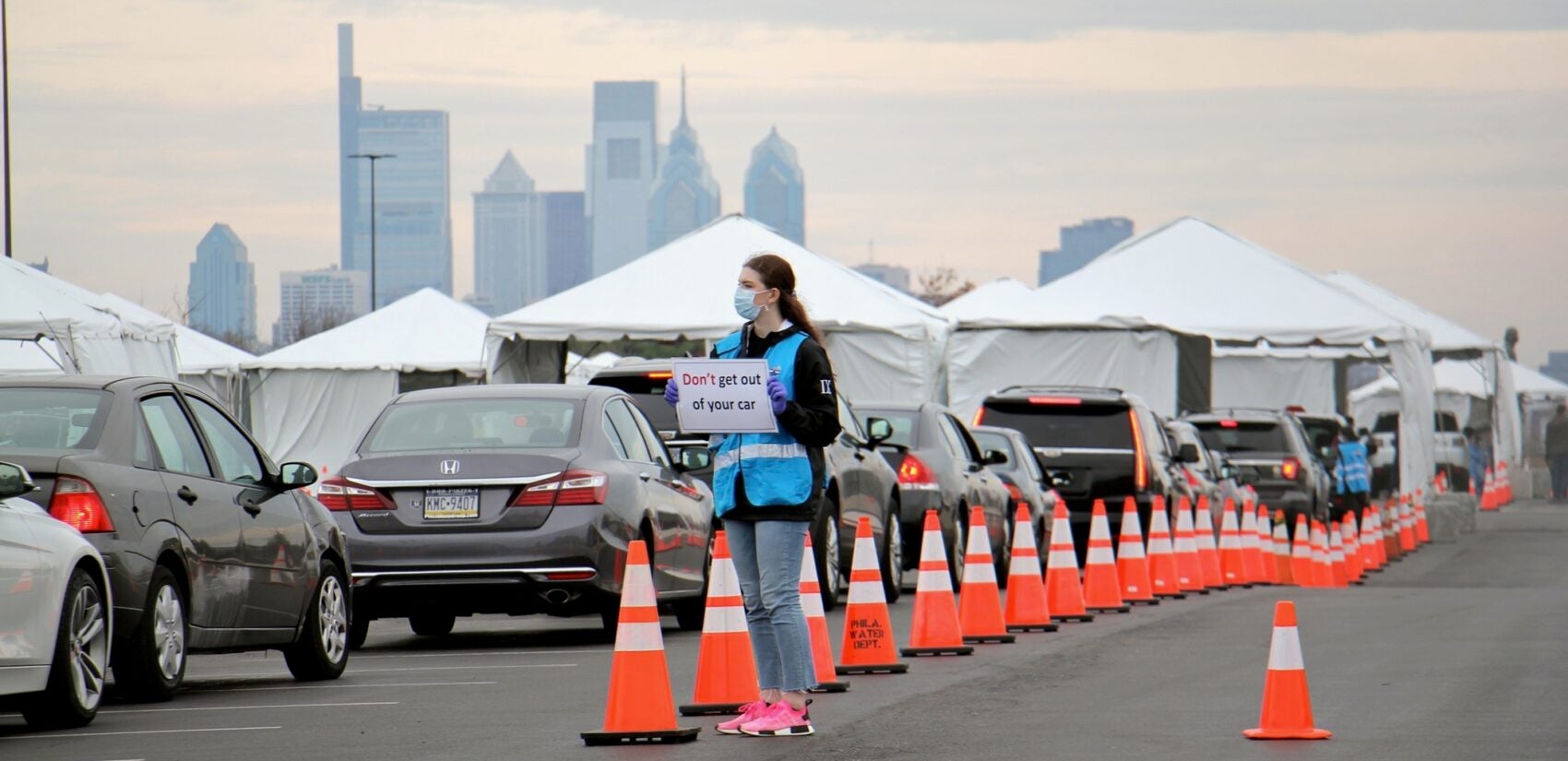
With schools closed, thousands of children in Philadelphia who relied on their schools for two meals a day were at risk. The city hastily arranged a distribution network.
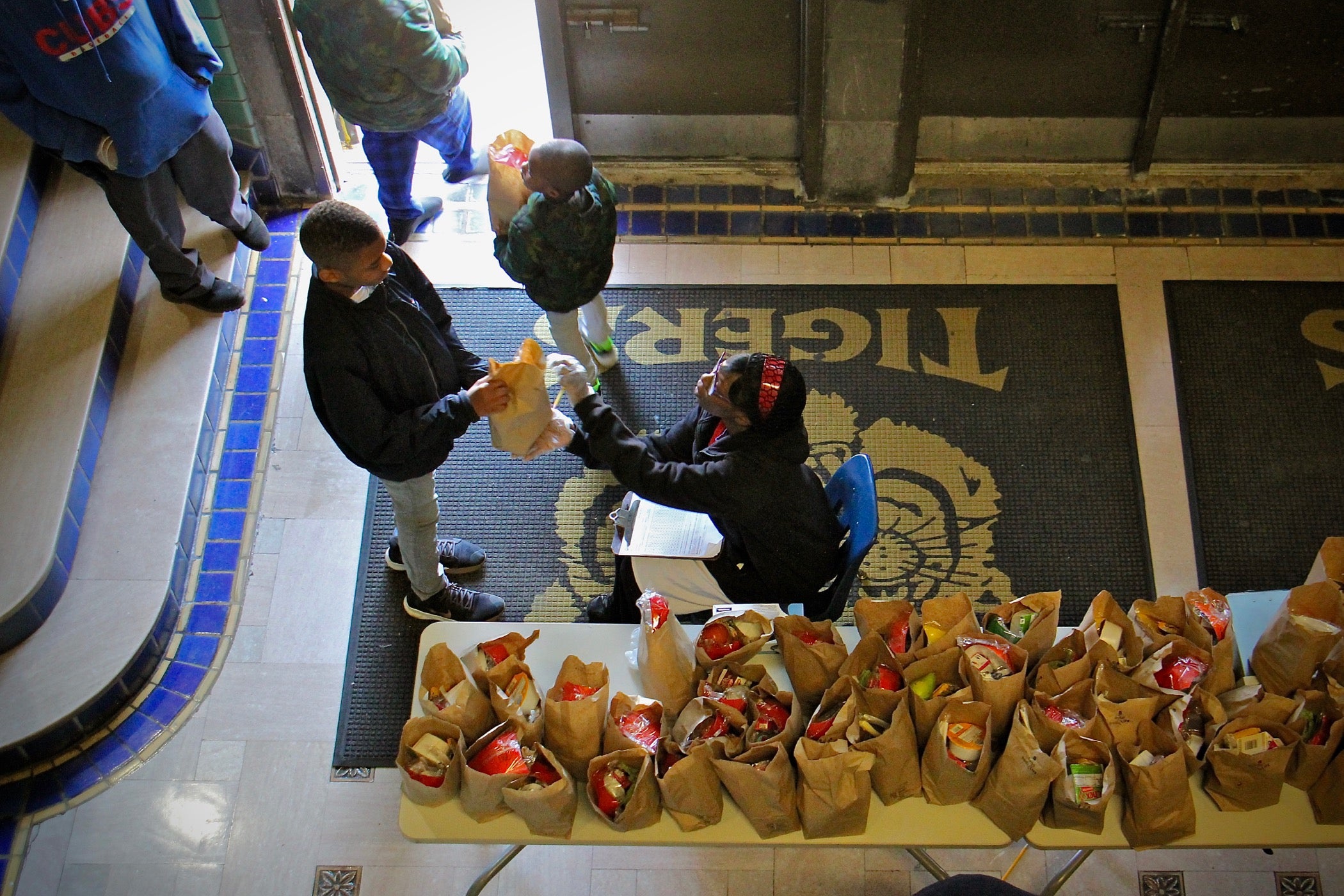
Although deemed an essential business, WHYY arranged for most of its employees to work from home. Hosts of popular radio shows like Fresh Air with Terry Gross created home studios.

Reporters learned to conduct interviews through masks and use 6-foot booms to maintain safe distances.
To soften the isolation of lockdown, Philly parents set up a rainbow hunt.
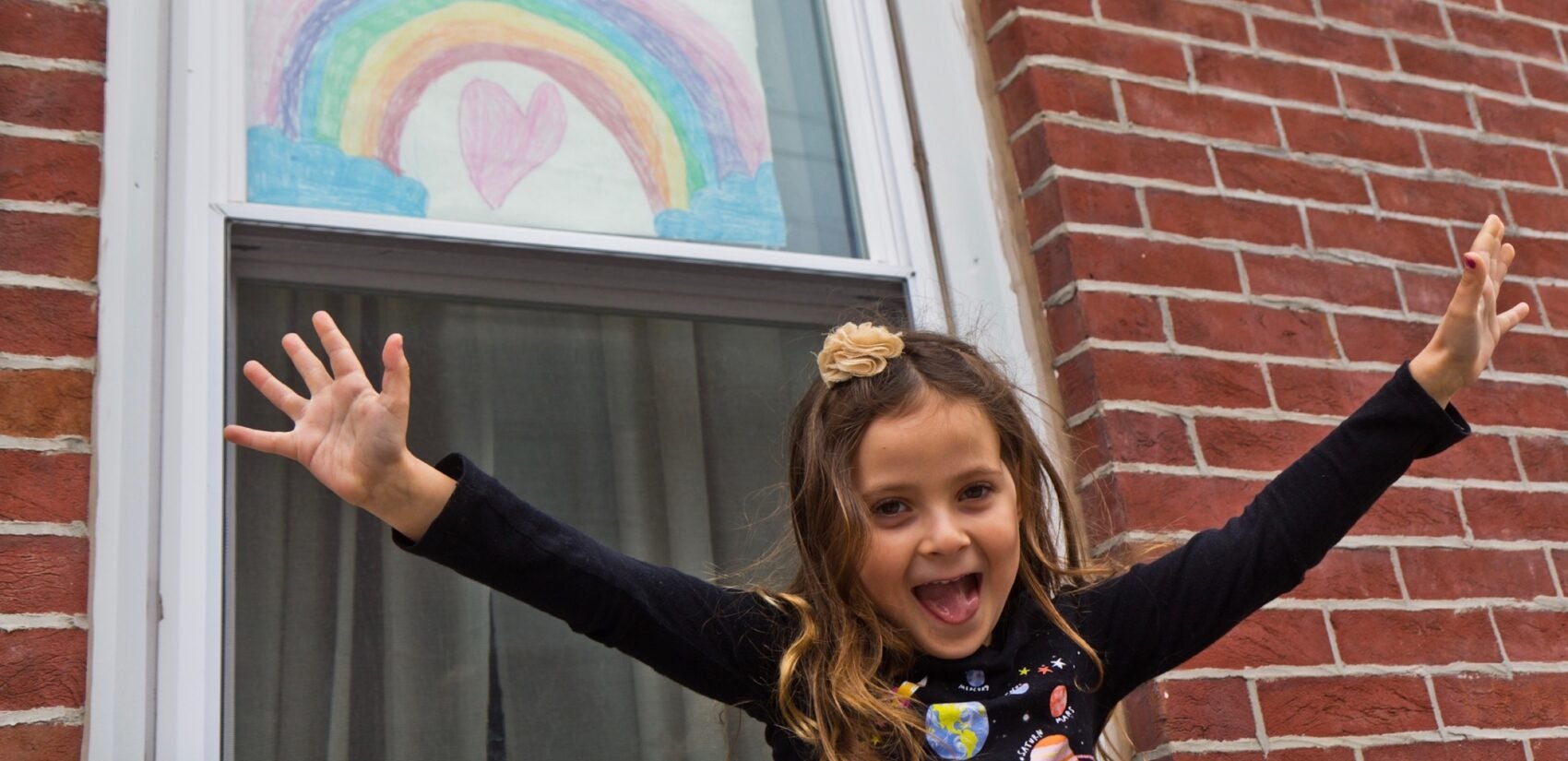
Philly set up public handwashing stations accompanied by art that encouraged mask-wearing and physical distancing among people experiencing homelessness.
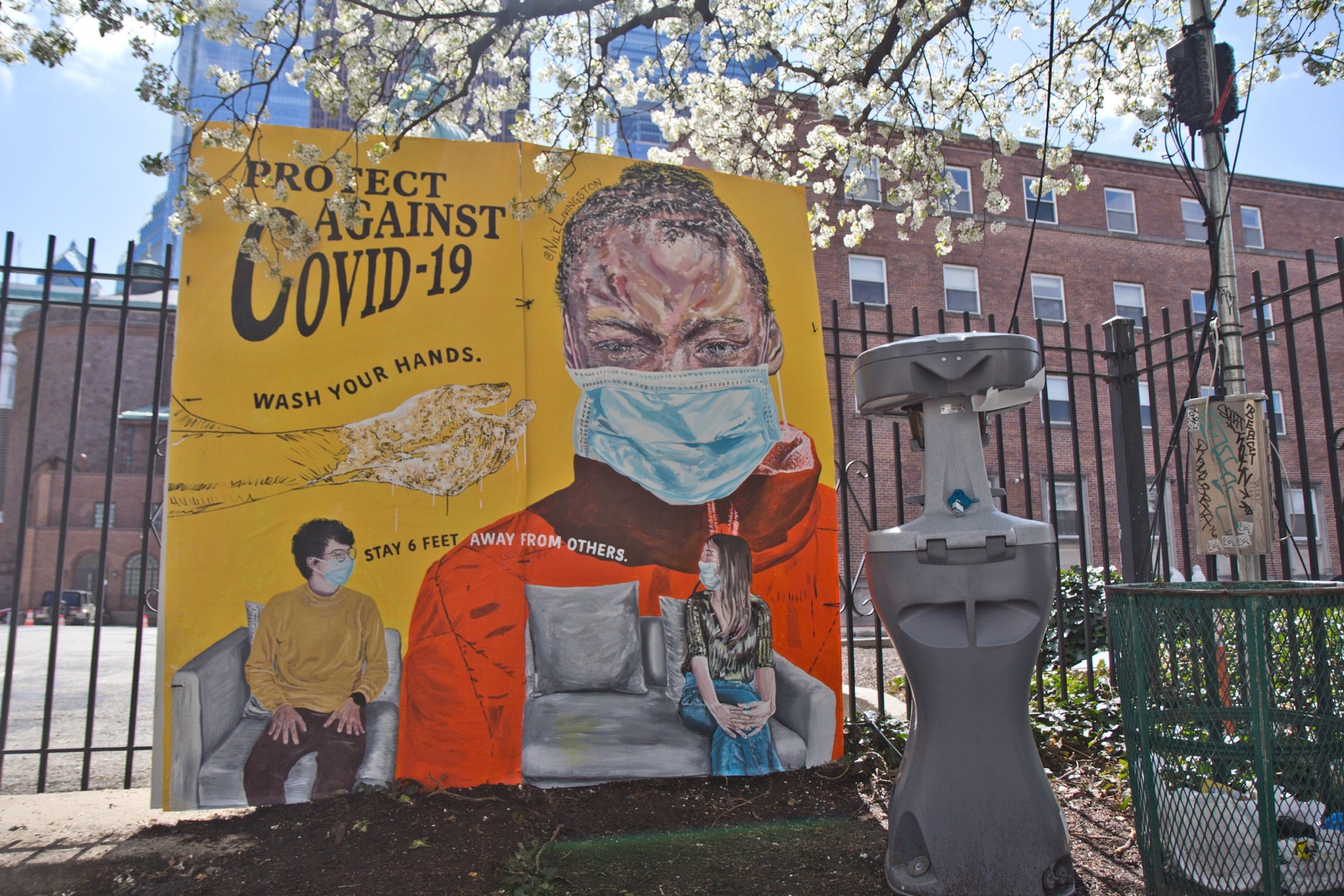
With venues closed and large public gatherings prohibited, performing artists looked for creative ways to continue working.
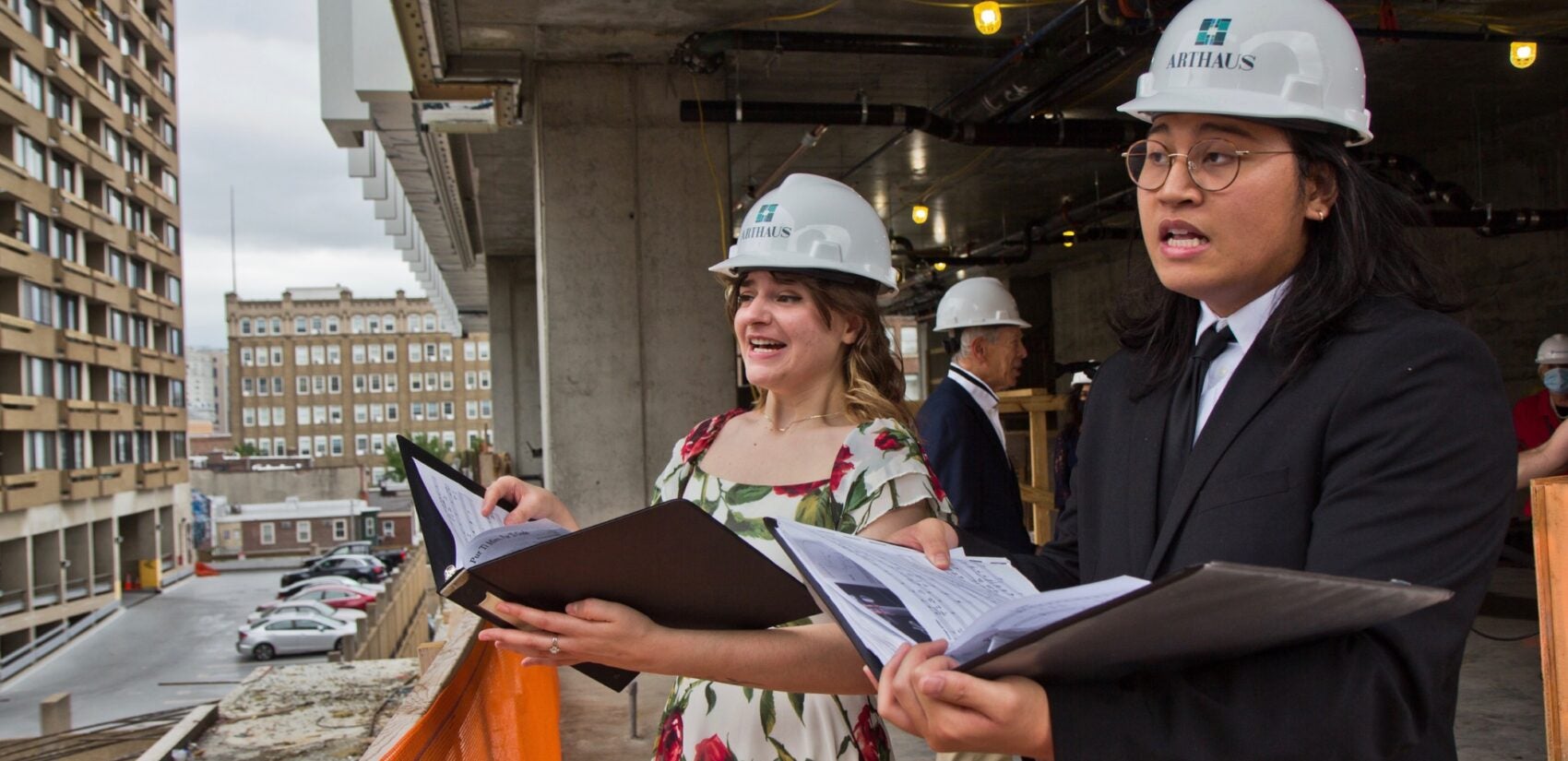
In April, anticipating a surge of COVID-19 patients, Philadelphia converted Temple University’s Liacouras Center into an emergency overflow hospital.
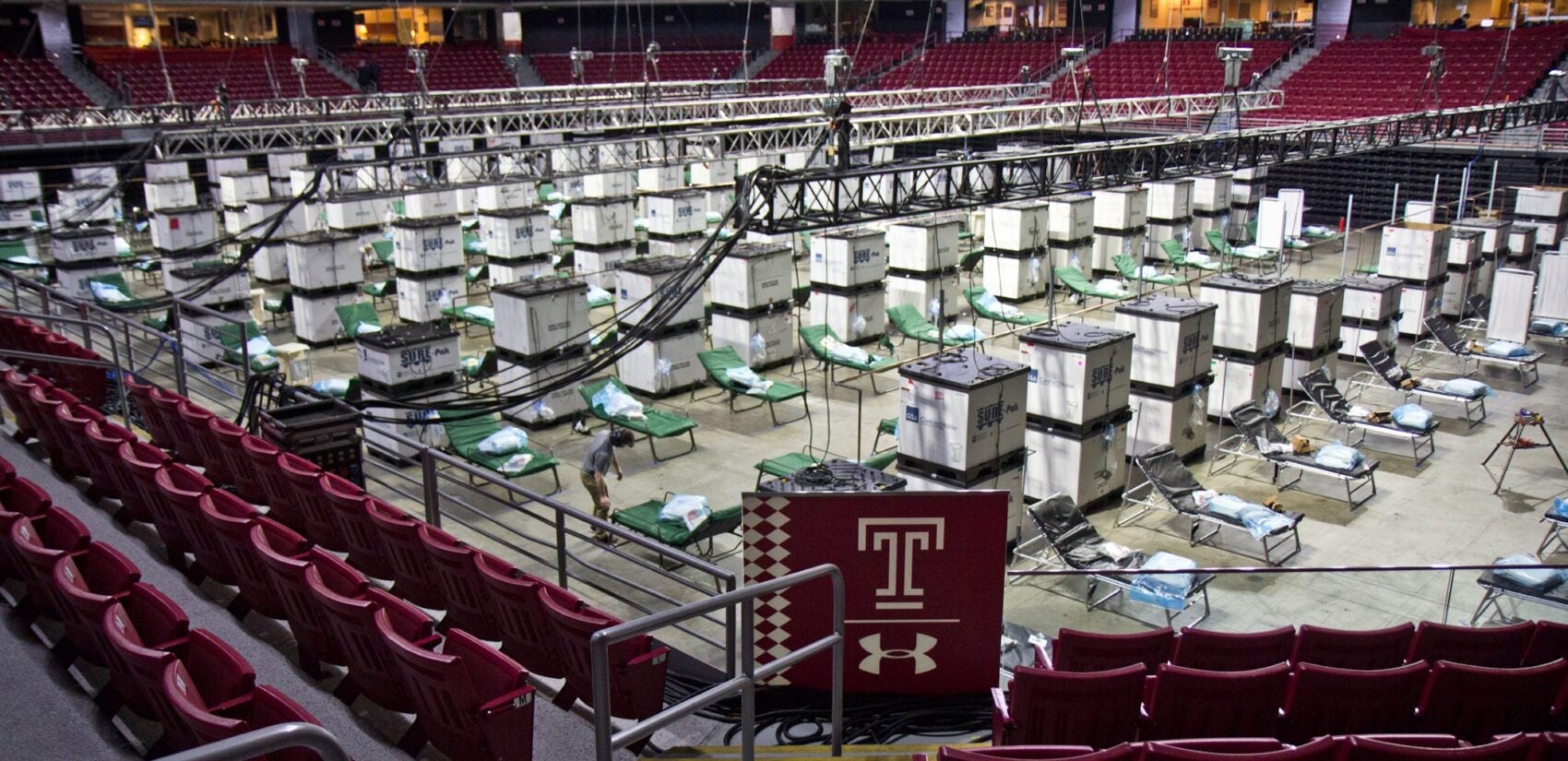
Dr. Ala Sanford of the Black Doctors Consortium began offering free COVID-19 tests in predominantly Black communities, which have been disproportionately impacted by the virus.
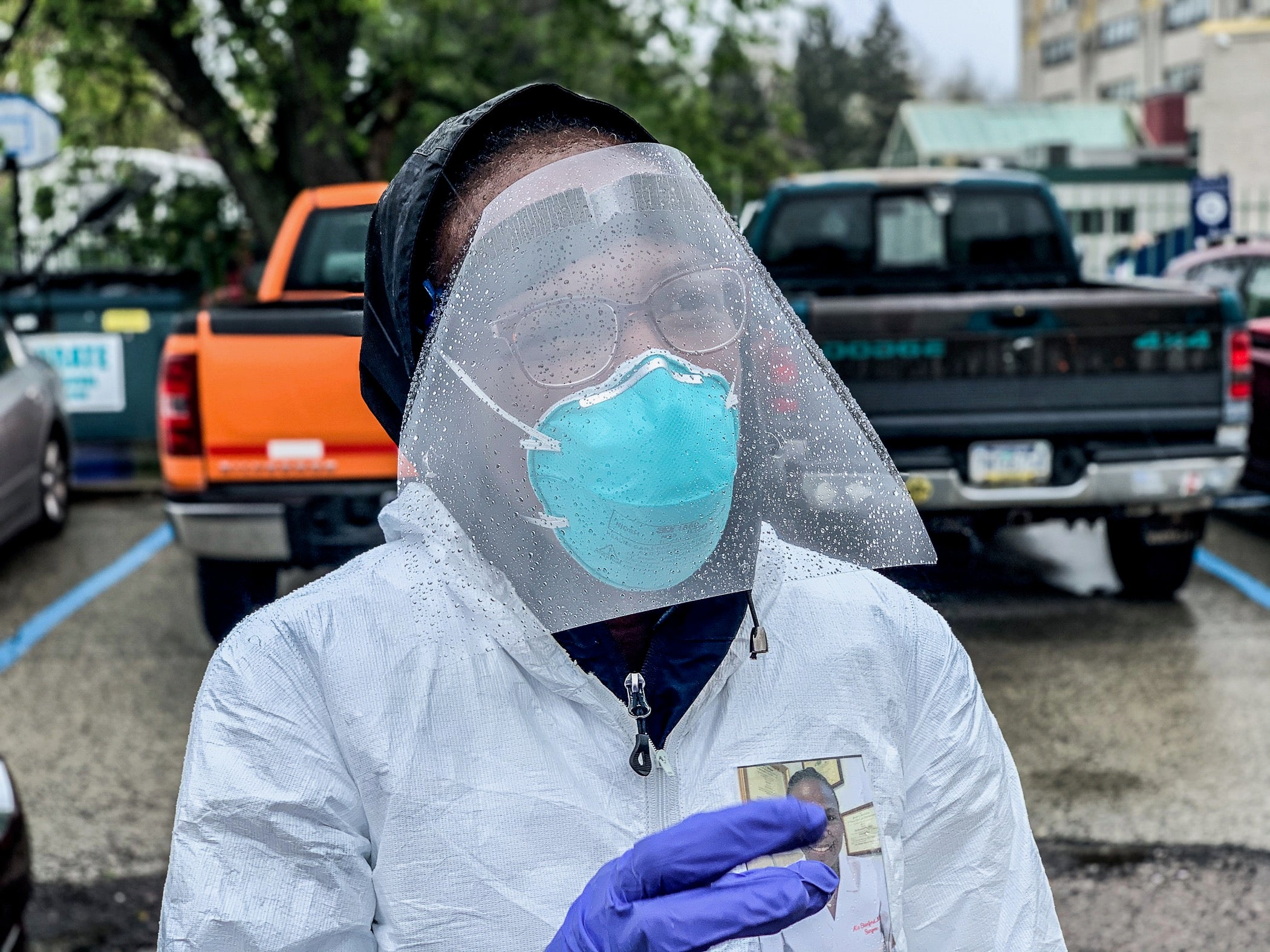

Restrictions on public gatherings limited funeral services to outdoor gatherings with no more than 10 people, even as the death toll mounted.
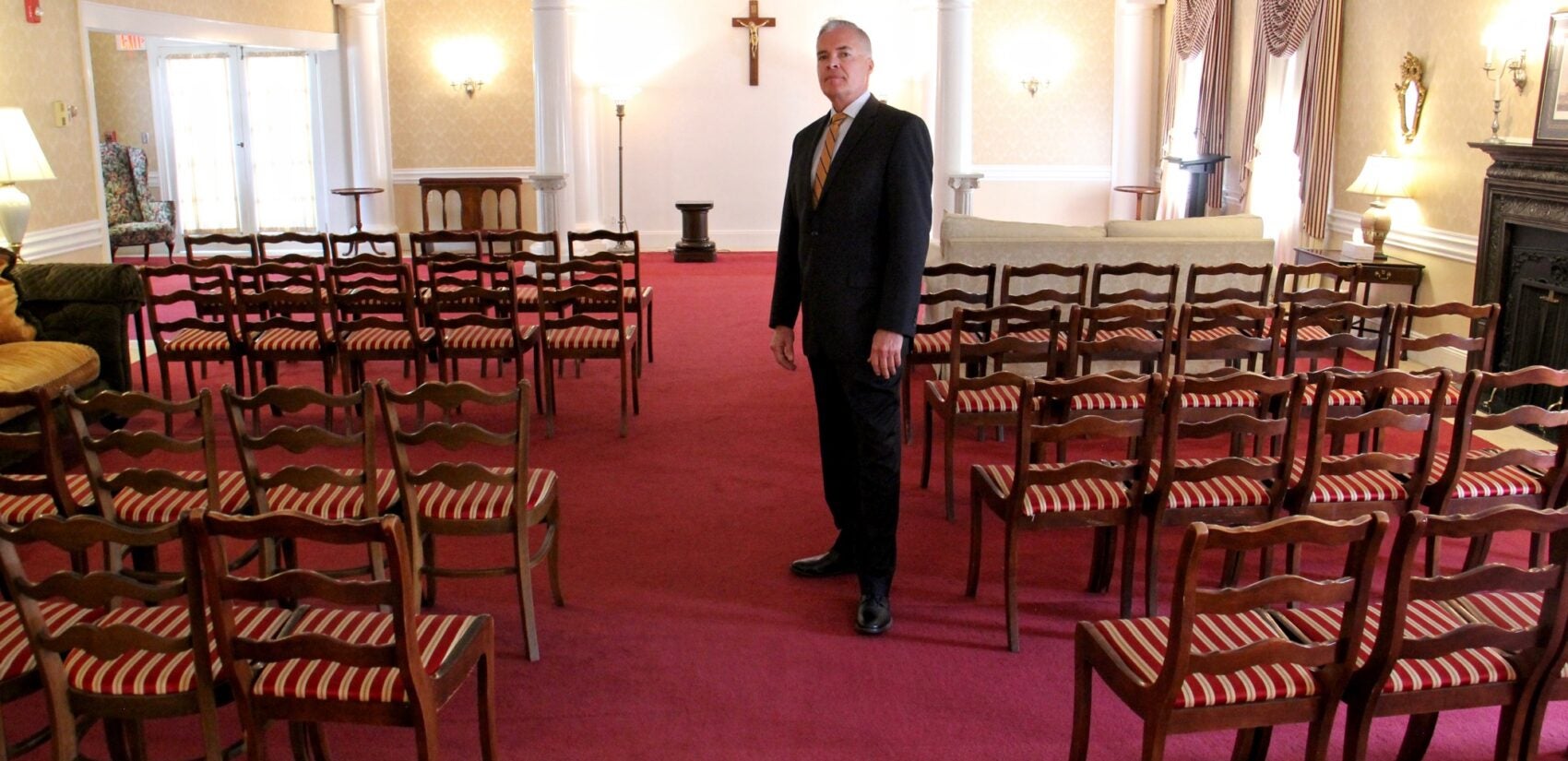
Two sisters, both nurses, struggled to find a fitting way to say goodbye to their father. Although he died of COVID-19 at the hospital where they worked, they were not allowed to visit him.
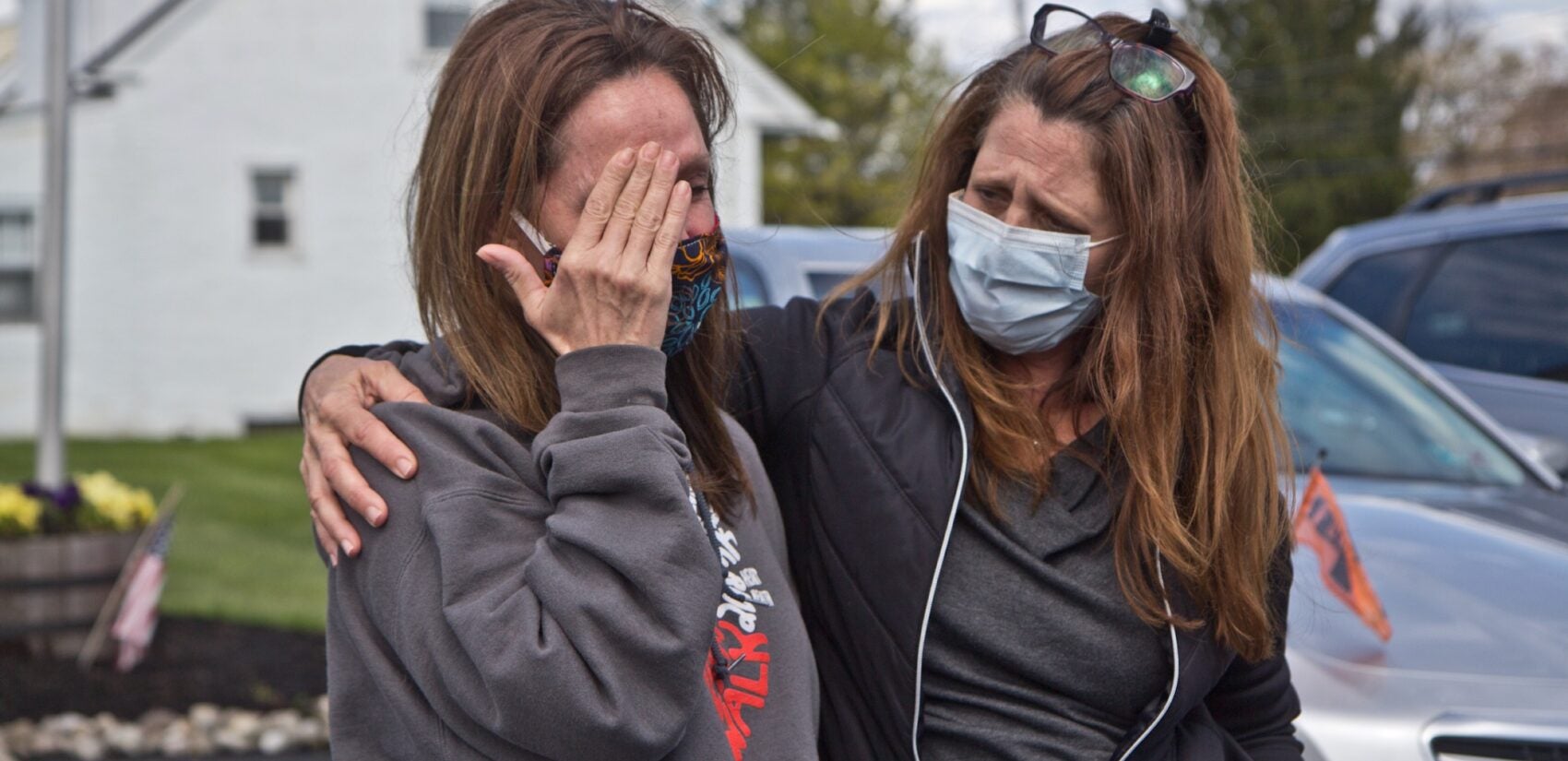
New Jersey shore towns opened to tourists on Memorial Day, but few came. Seasonal businesses struggled to survive.
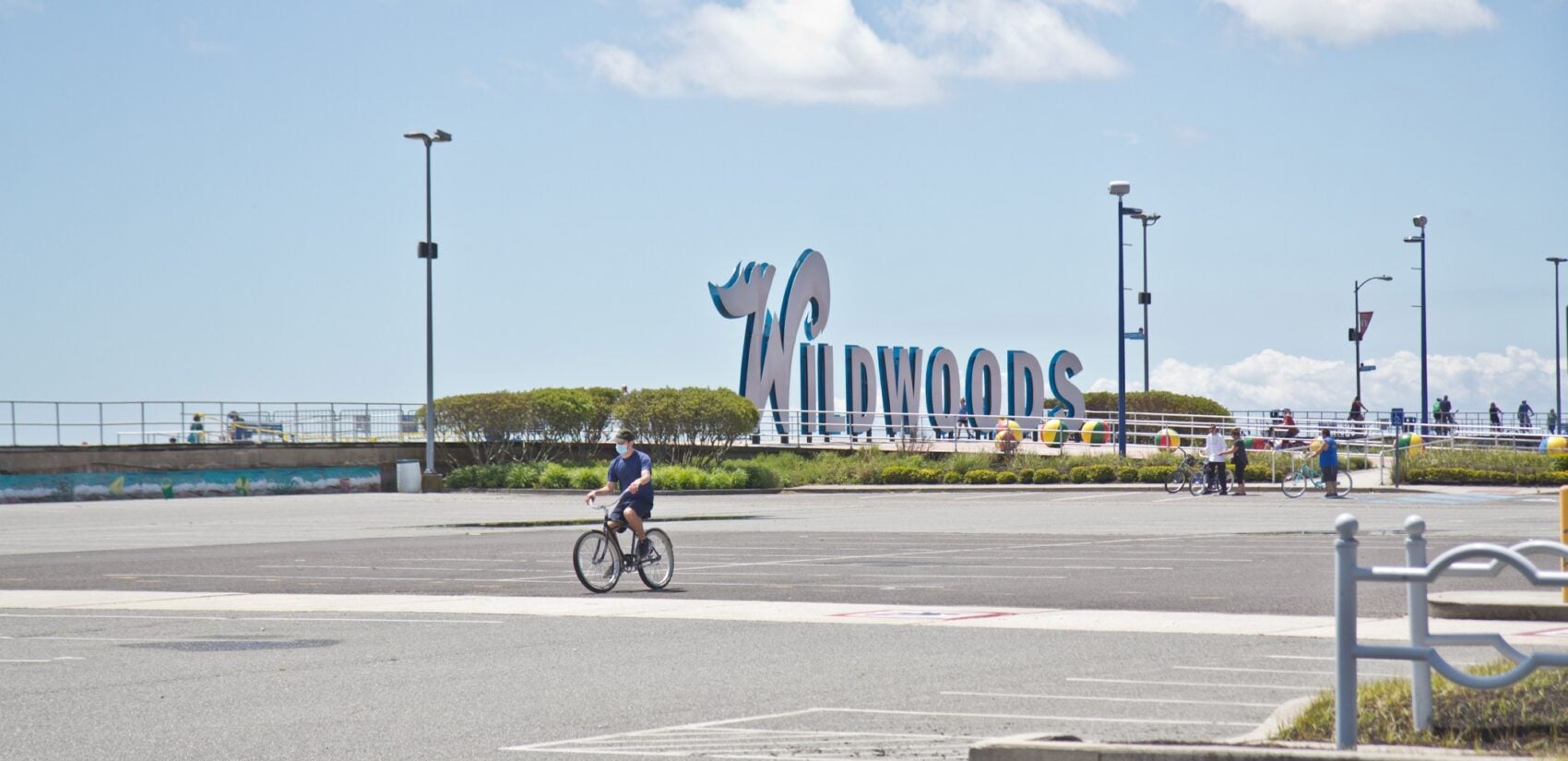
Class of 2020
The class of 2020 finished the year with virtual teaching. High school graduations couldn’t be held under pandemic restrictions.
Pottstown students graduated one at a time before an audience of lawn signs representing their classmates. The ceremony took six days.
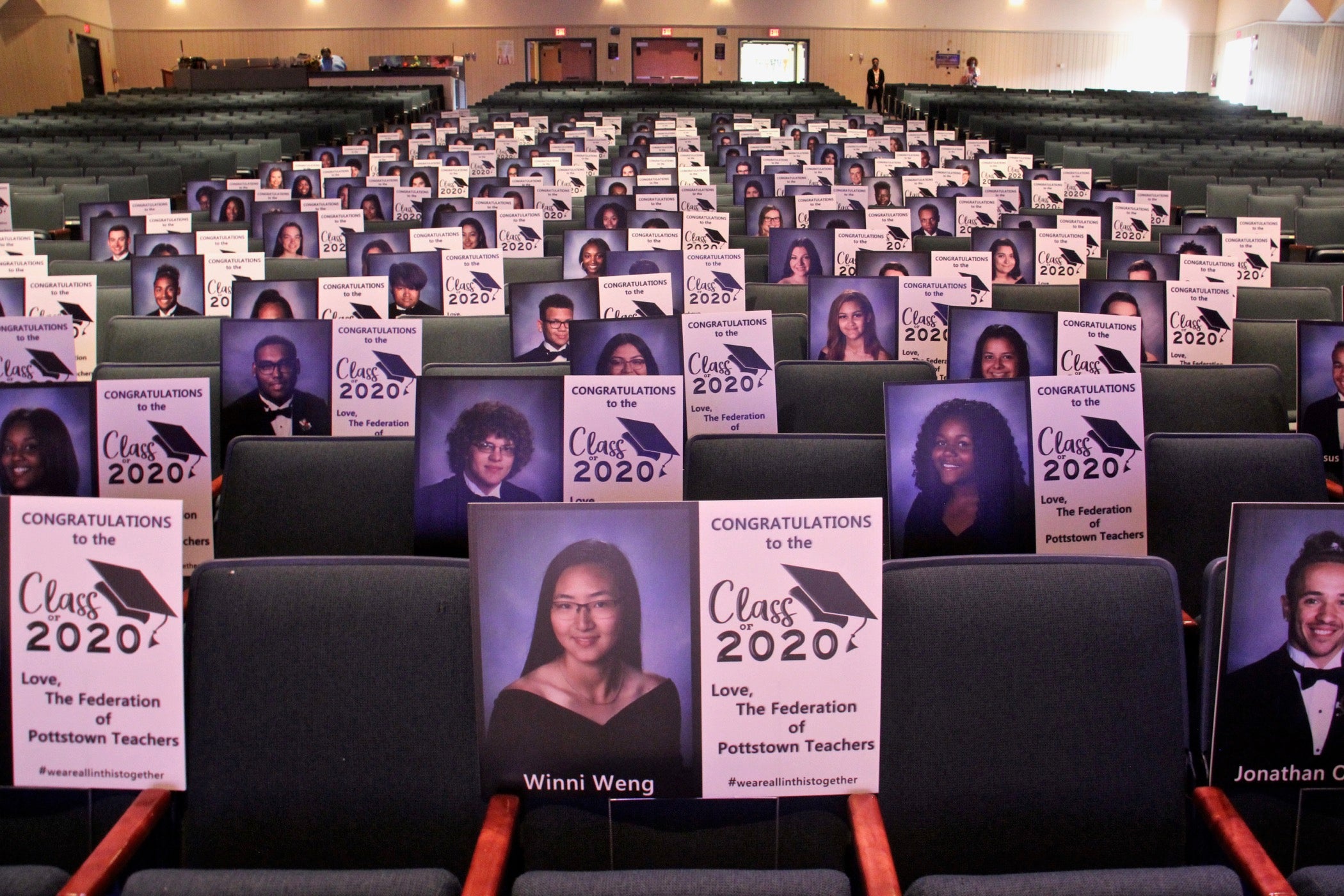
Camden high school students celebrated with a parade.
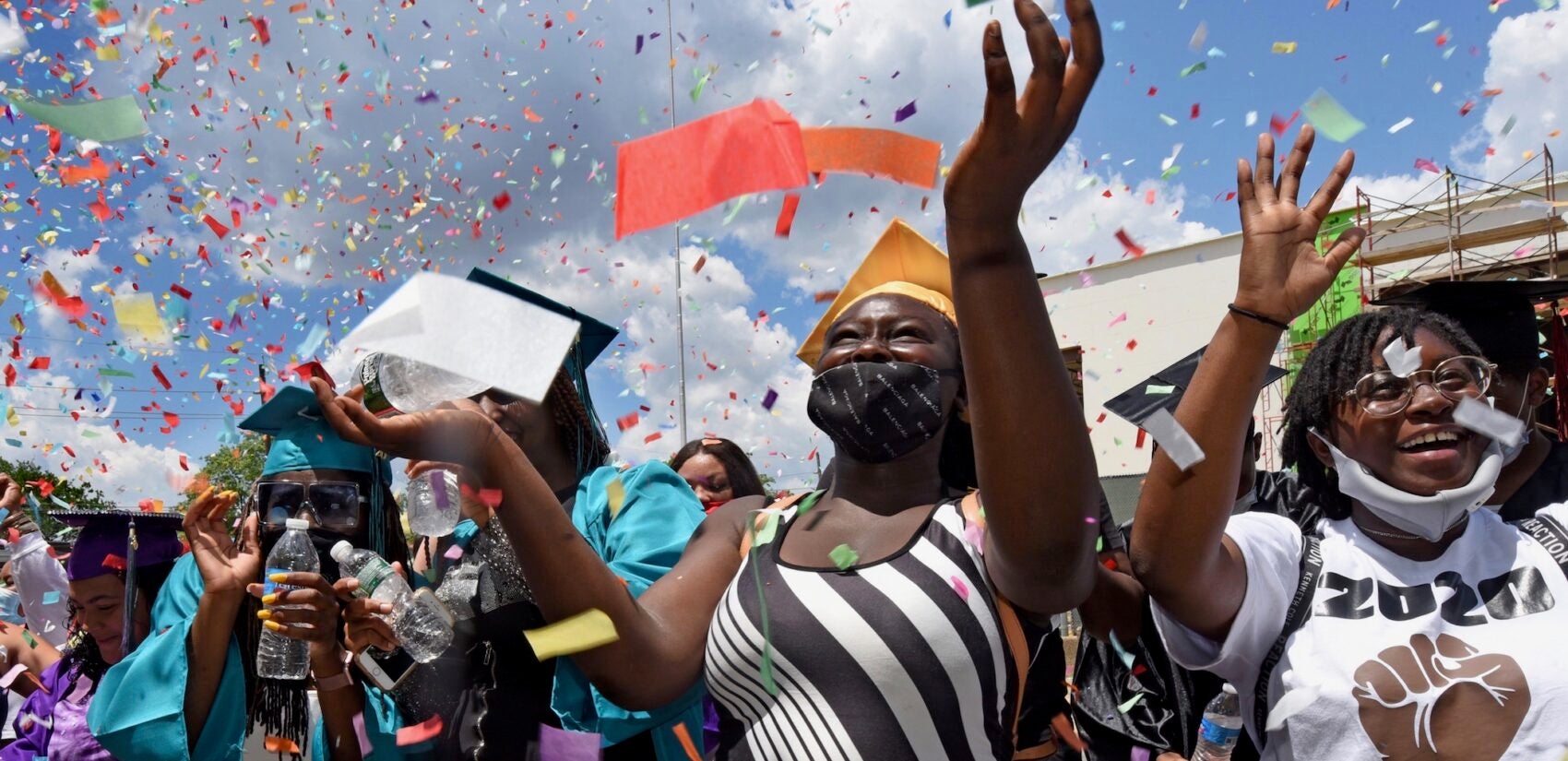
Racial reckoning
The killing of George Floyd by Minneapolis police on May 25 sparked protests in Philadelphia and the surrounding suburbs that continued for weeks.
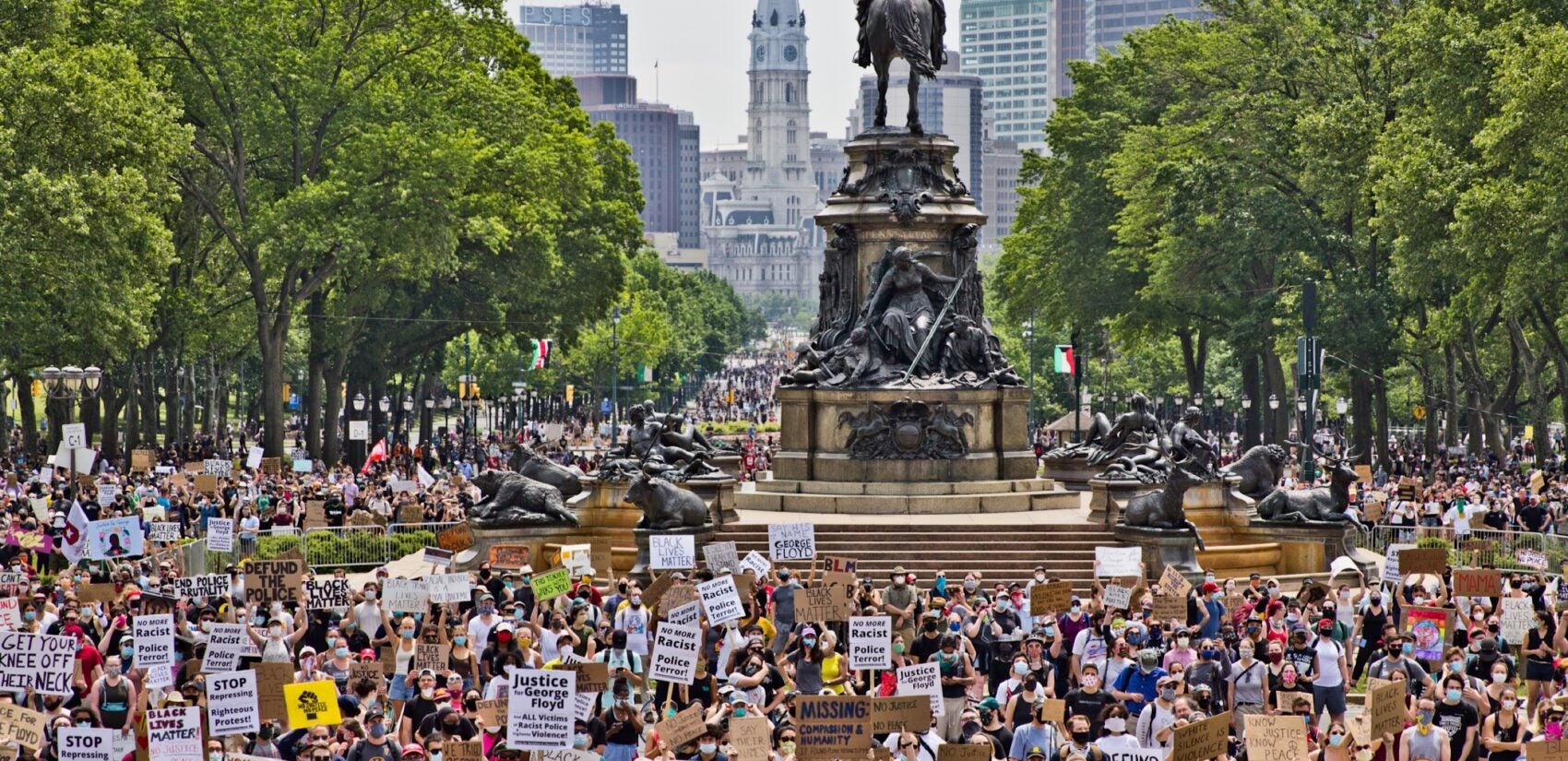
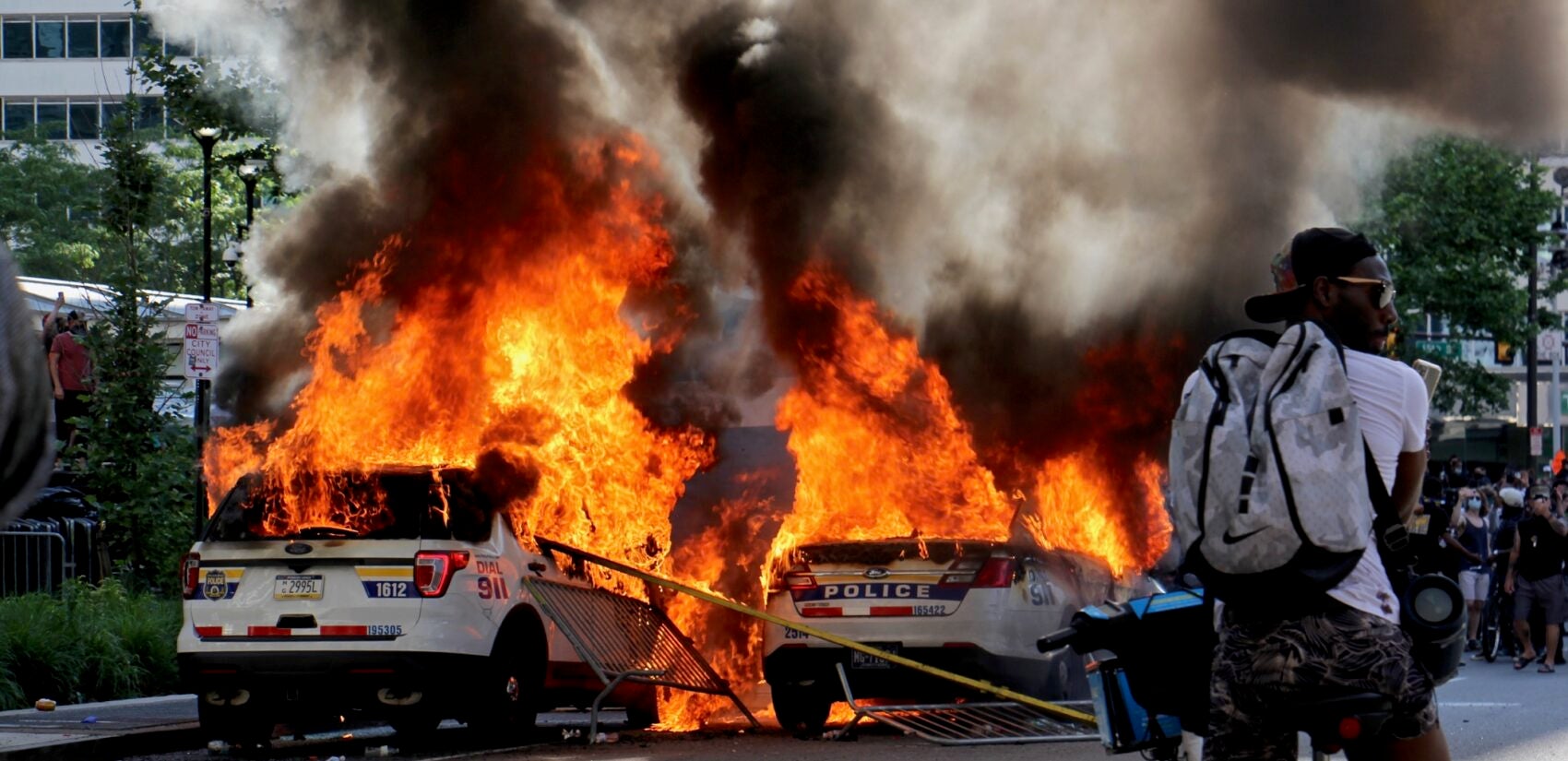
Police came under fire for using tear gas on peaceful protesters and residents.
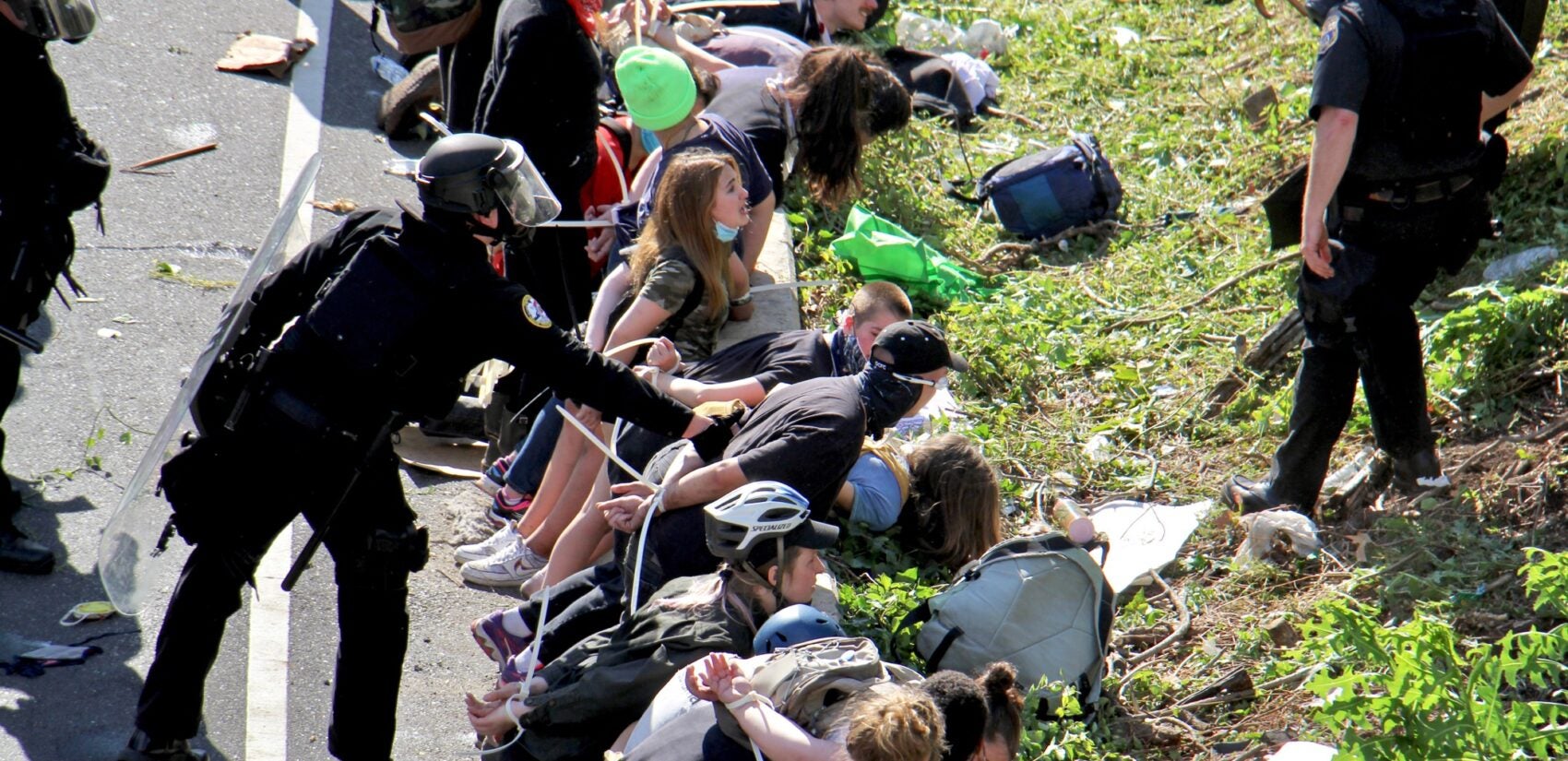
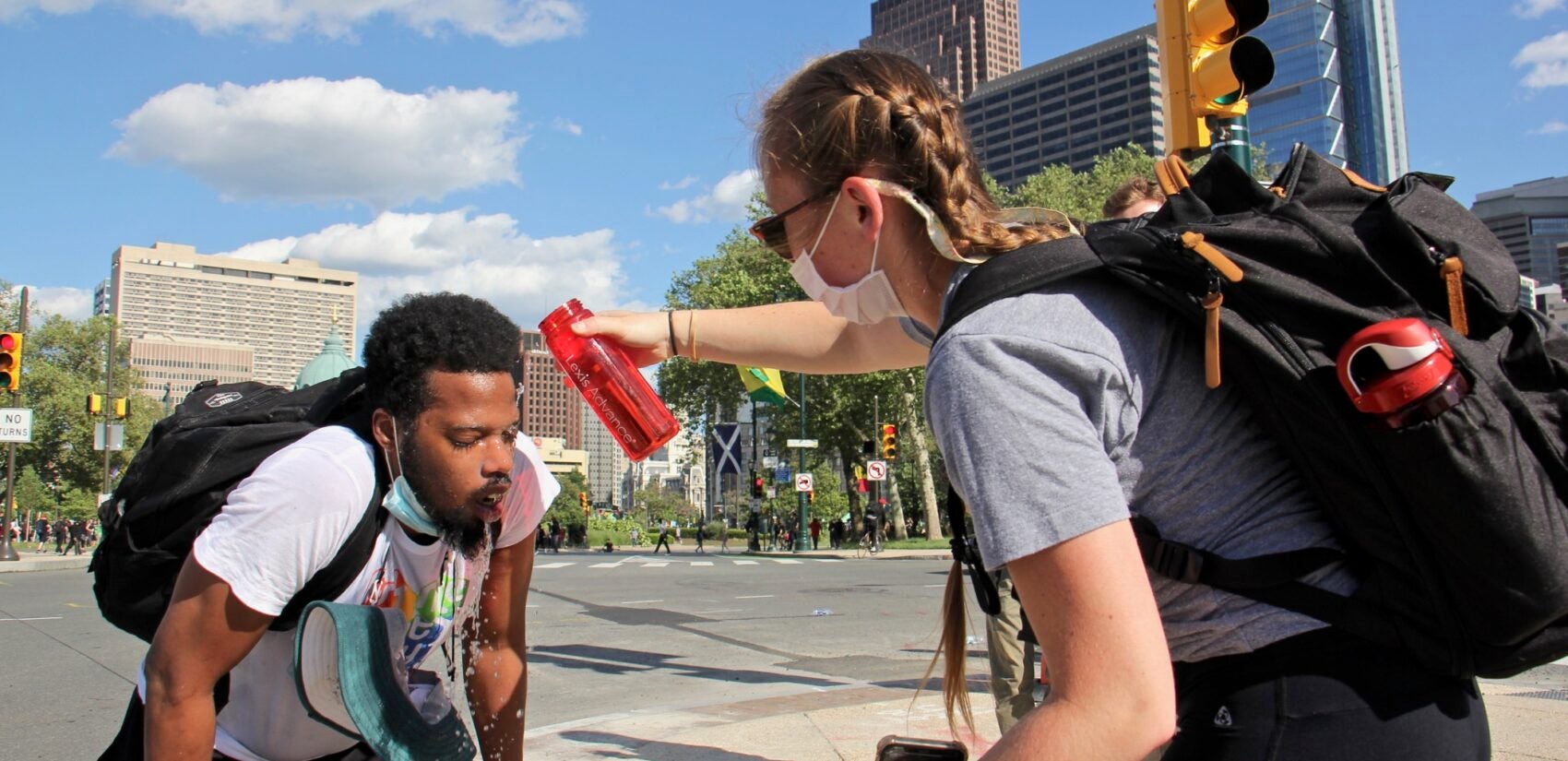
Protesters attempted to take down the statue of former Philadelphia Police Commissioner and Mayor Frank Rizzo, which had become a symbol of police brutality and racism. That statue was later removed from the steps of the Municipal Services Building in Center City.
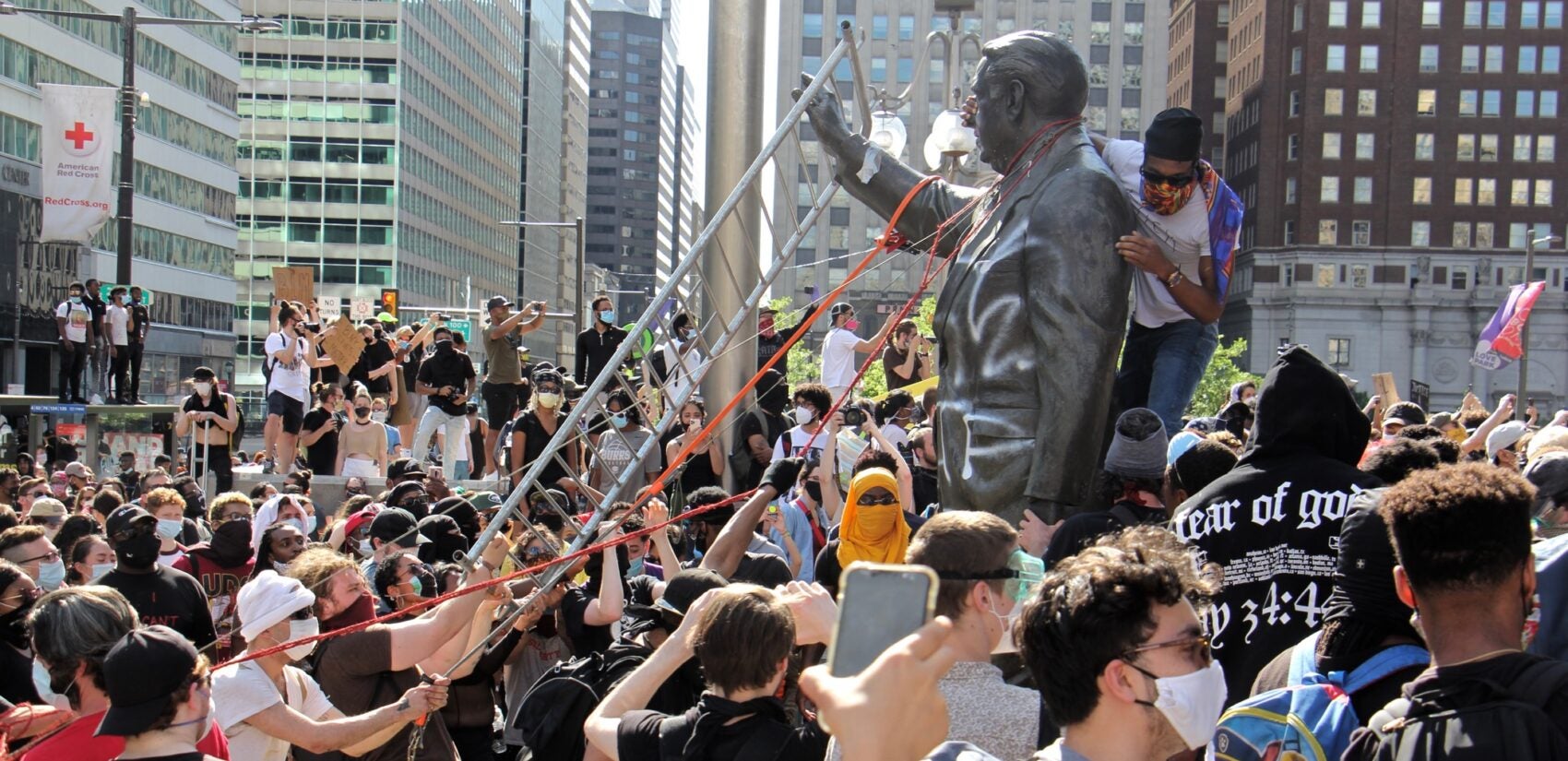
Attention then turned to the statue of Christopher Columbus at Marconi Plaza in South Philadelphia. Protectors of the statue, some armed with guns, stood guard and sometimes clashed violently with protesters who saw it as a symbol of colonial atrocities.
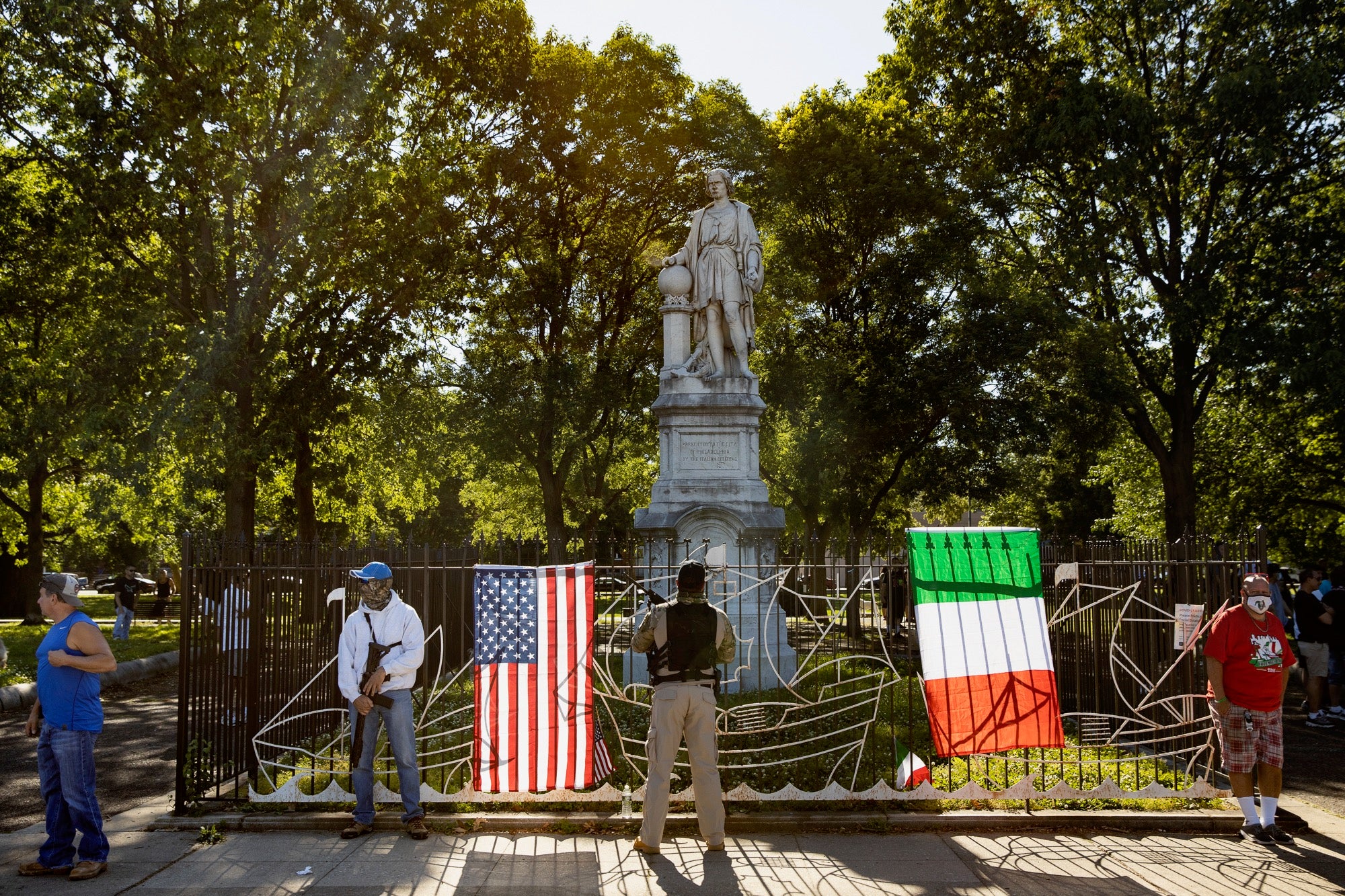
The statue was concealed under a large wooden box and the city held hearings to determine its fate.
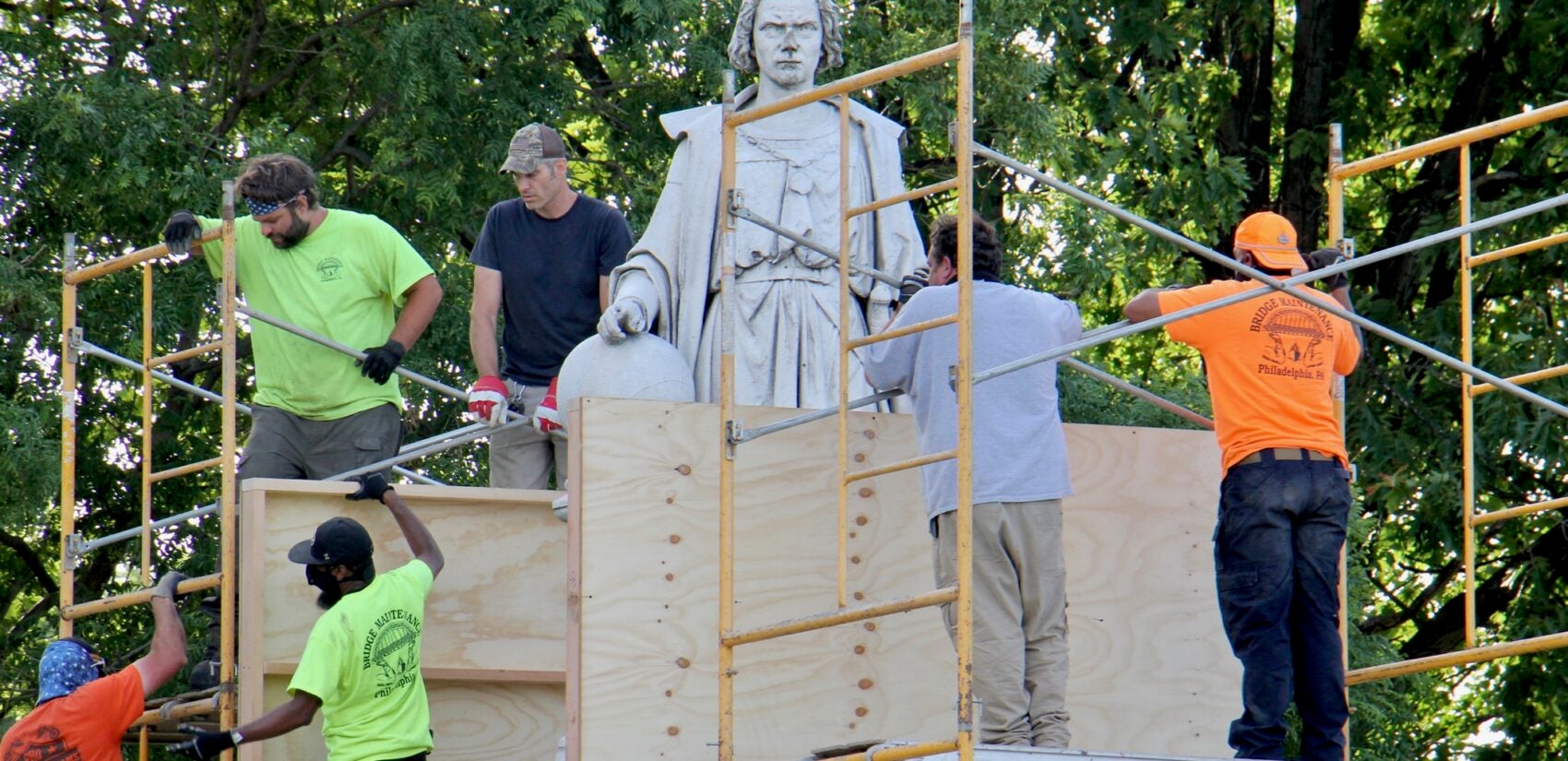
In June, dozens of people experiencing homelessness and their supporters set up camp on Von Colln Field on the Ben Franklin Parkway, using the highly visible location to protest the city’s policies toward people experiencing housing insecurity. The protest continued into October when the camp was dismantled after the city agreed to demands for permanent housing.

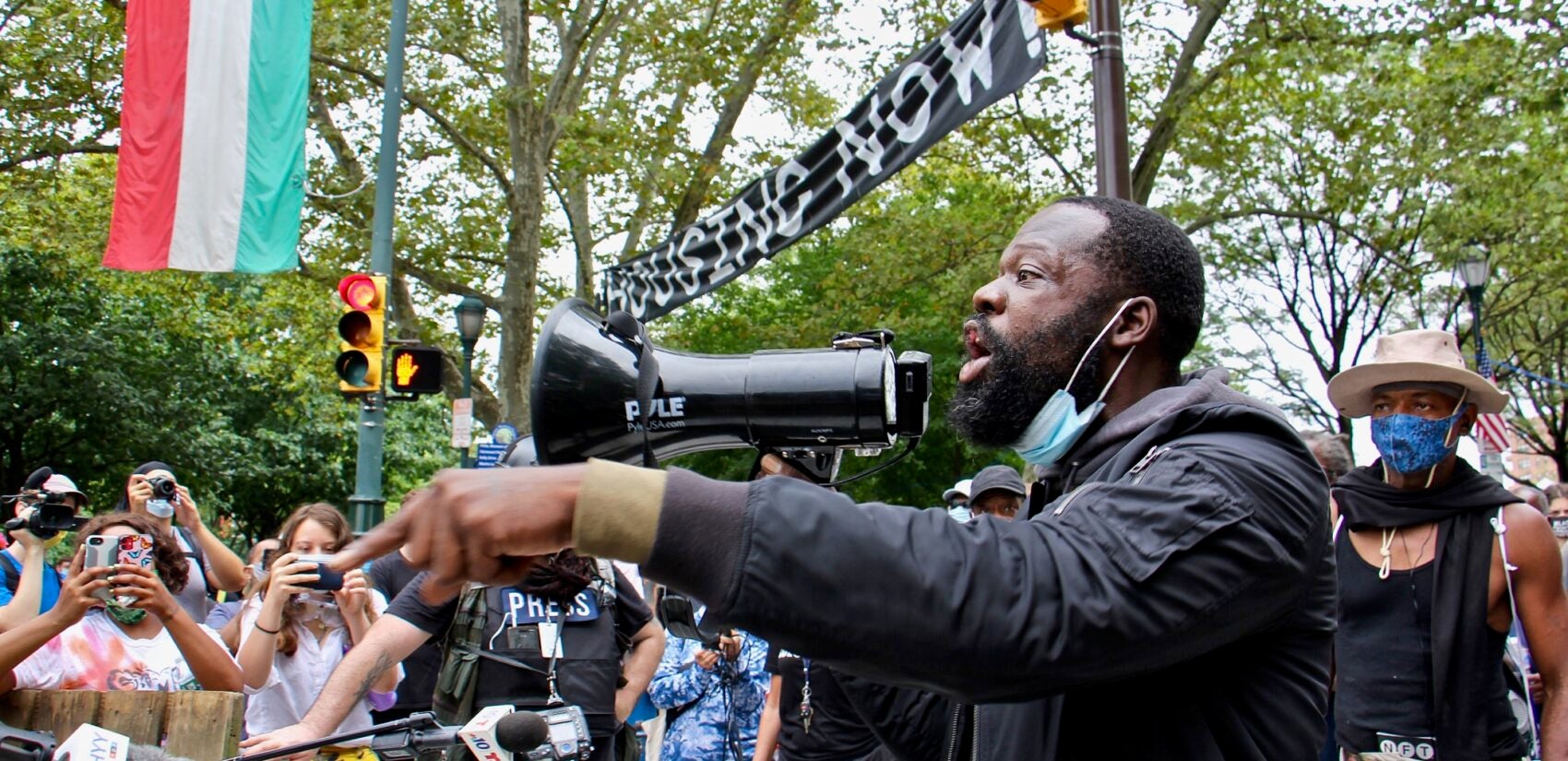
Election 2020 preparations
As Election Day neared, get-out-the-vote efforts created a festive atmosphere with performances and public art.

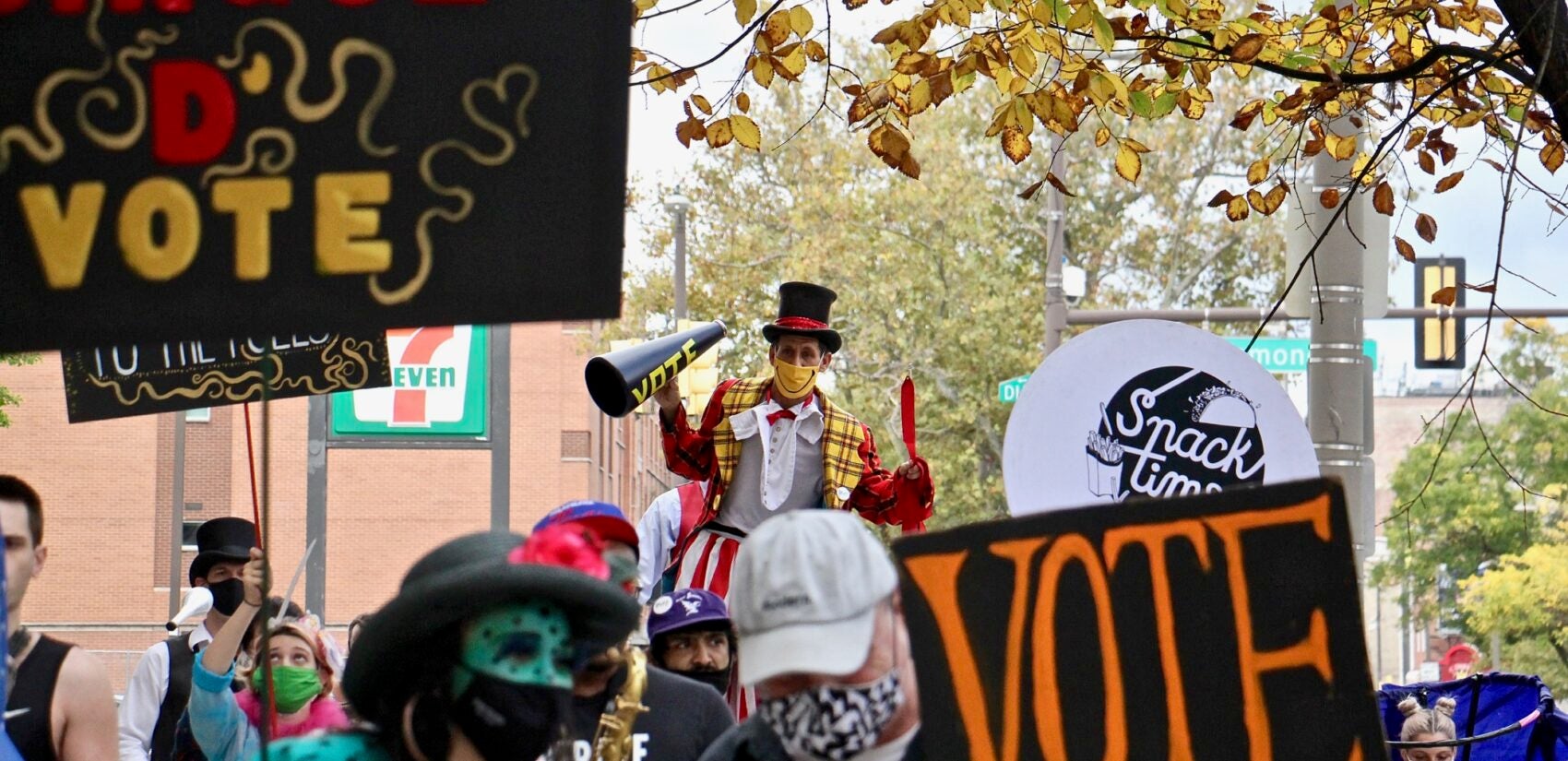
Vote-by-mail provisions were made, but many chose to stand in long lines at voting centers to personally deliver their ballots.
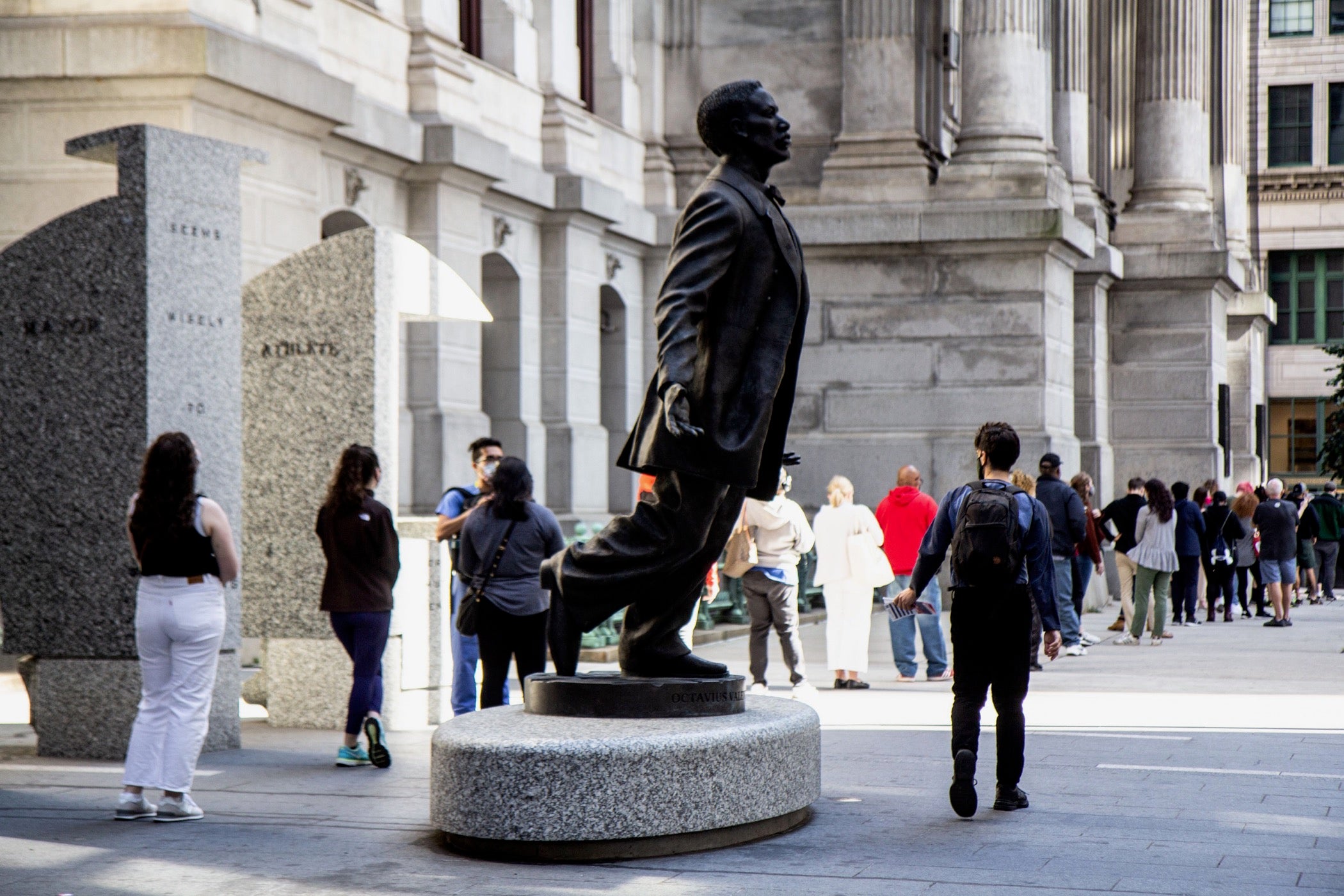

Walter Wallace Jr.
On Oct. 26, two Philadelphia police officers shot and killed Walter Wallace Jr. outside his home in West Philadelphia. The streets of Philadelphia were once again filled with protesters.
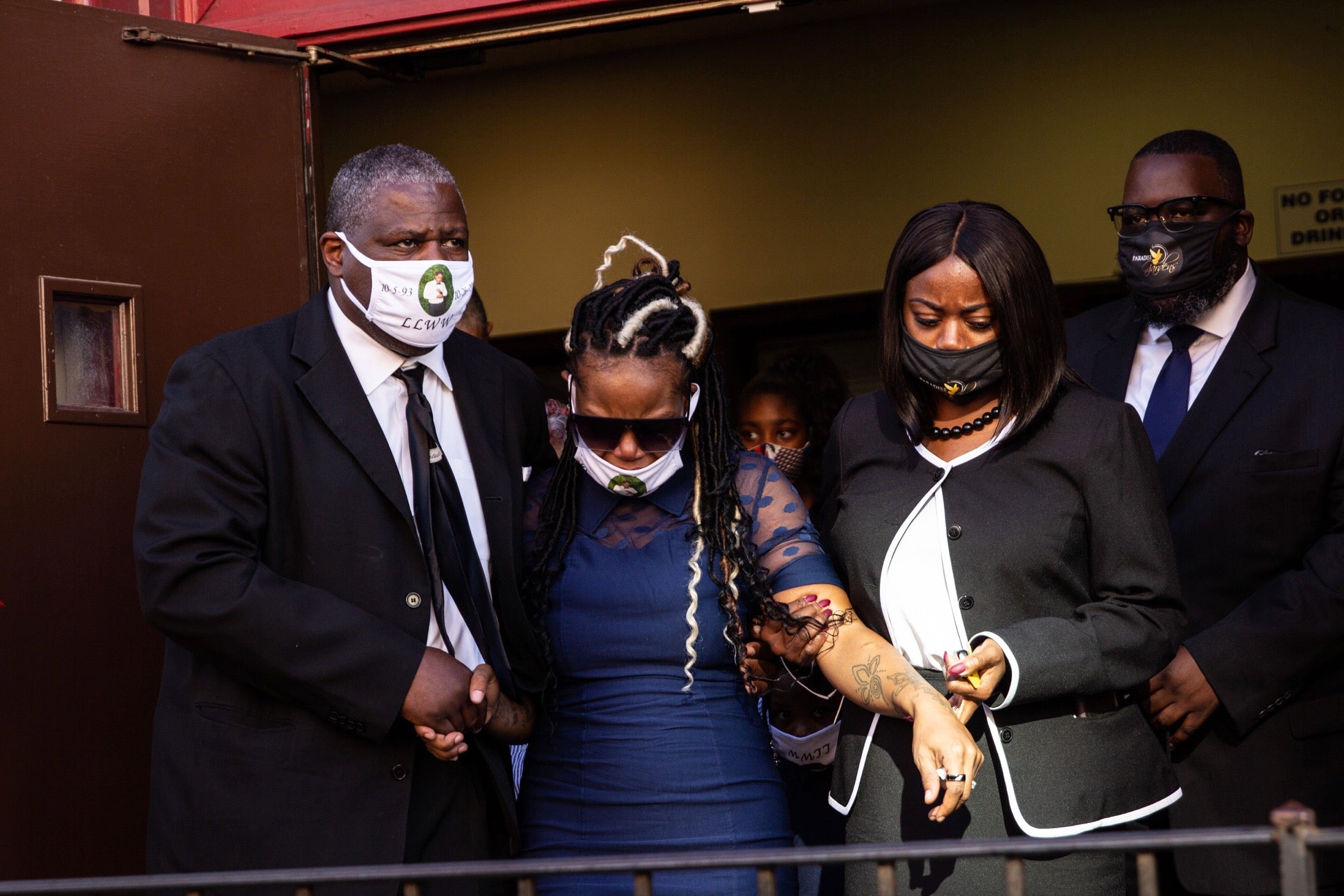
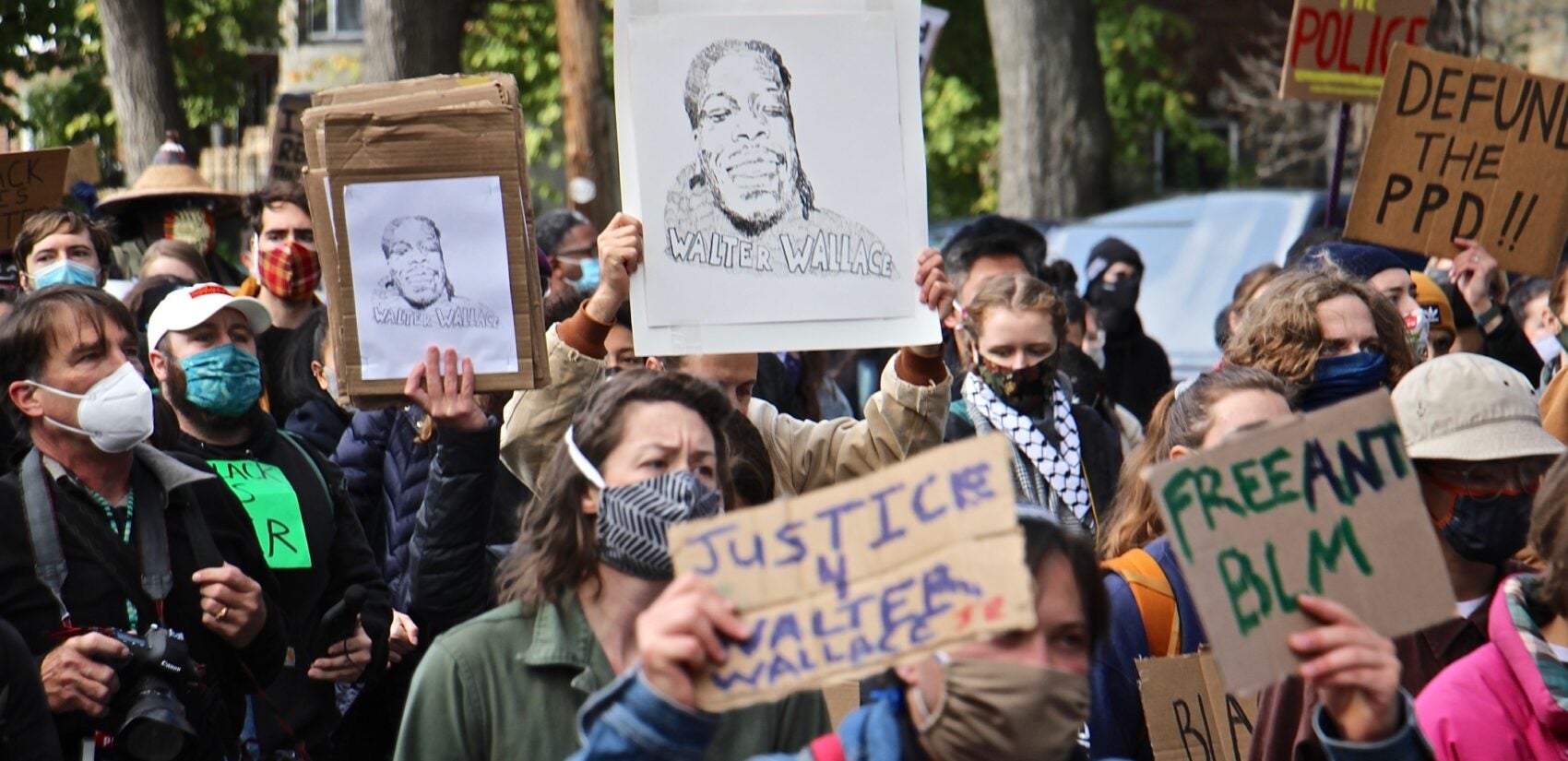
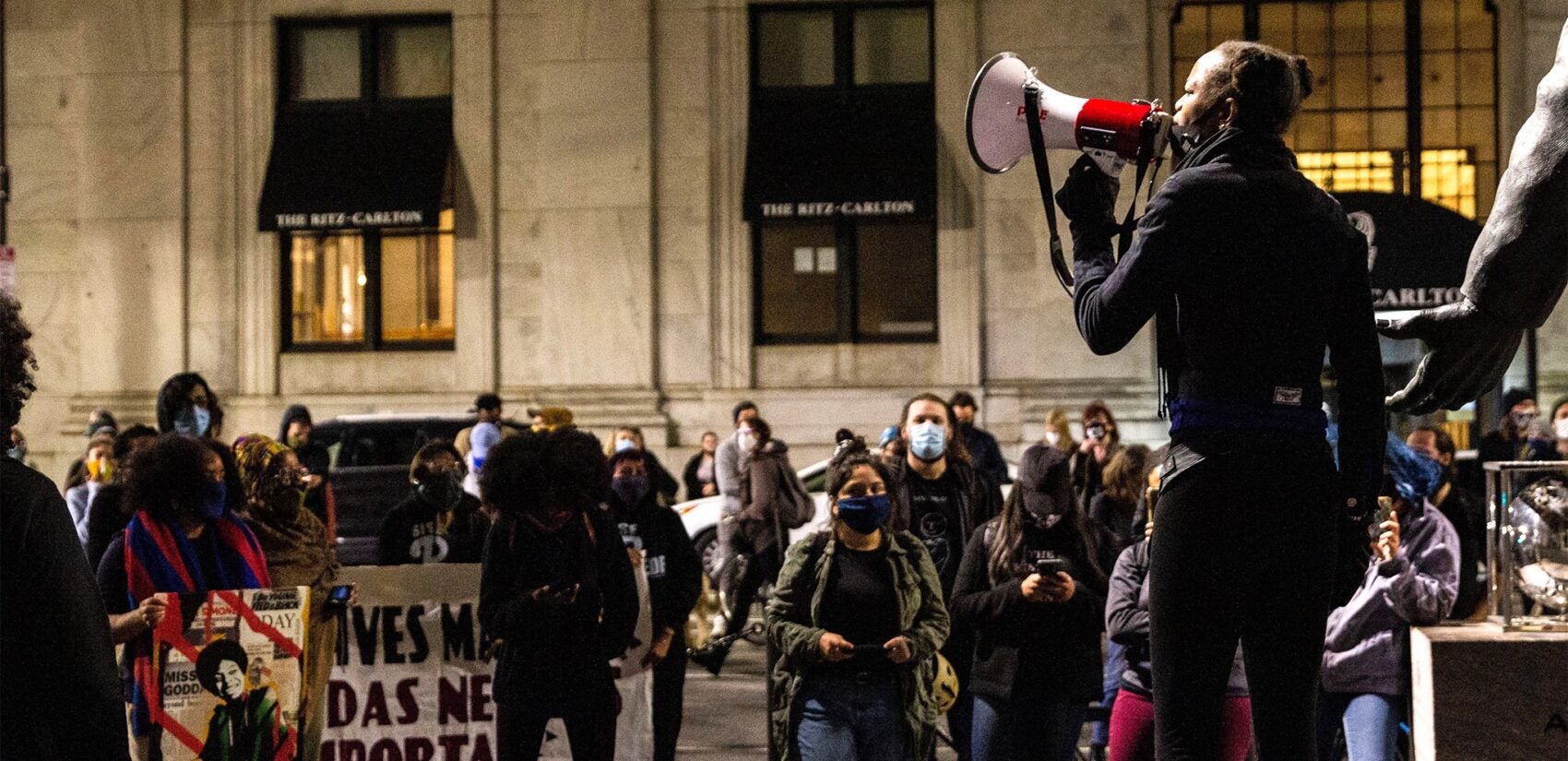
Election Day
A record number of mail ballots were cast in the 2020 election, and some districts took a week or more to count them all.
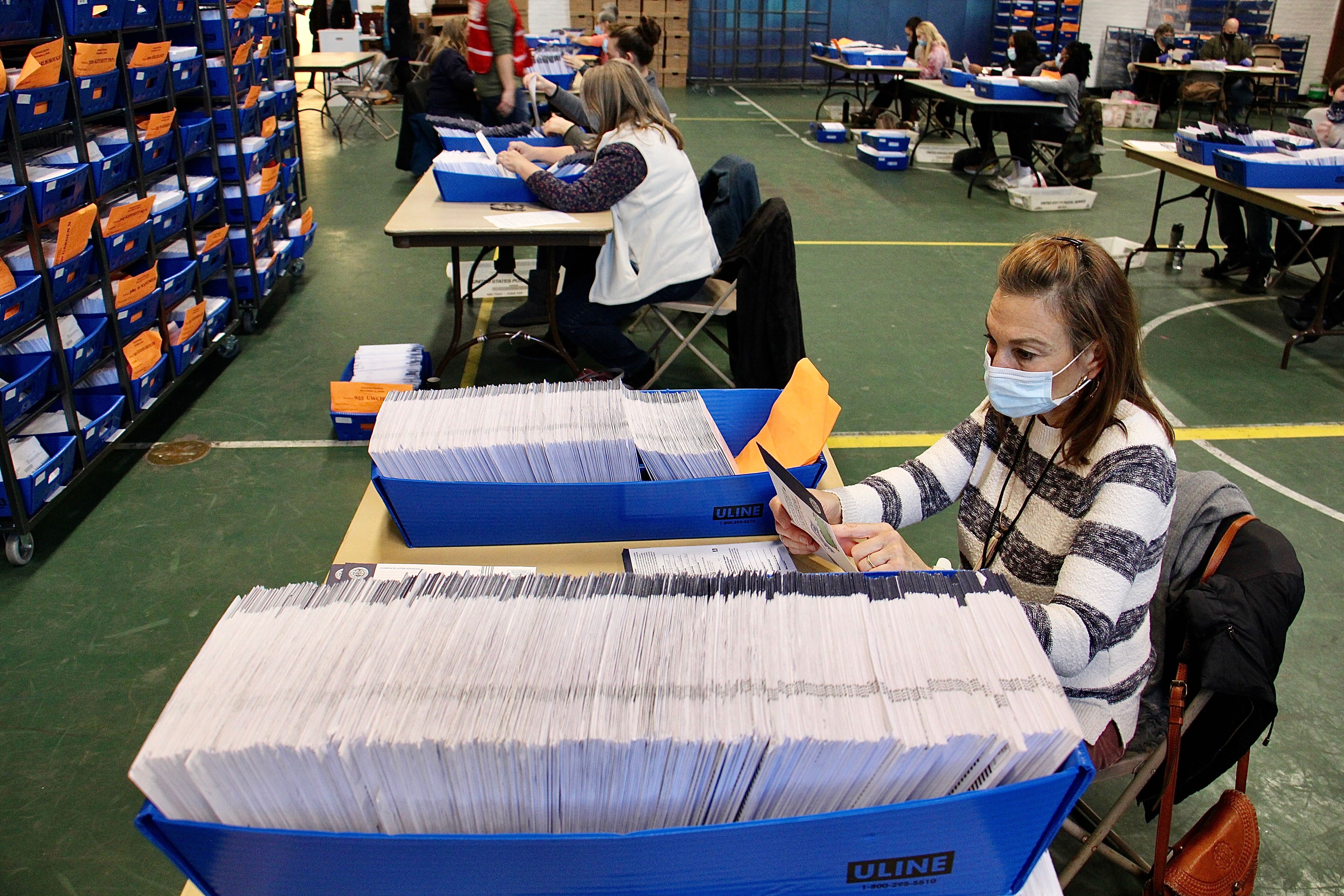
With the outcome of the presidential race in question, Philadelphia became a focal point. Dueling protests sprang up outside the Pennsylvania Convention Center, where votes were being counted, and continued for days.
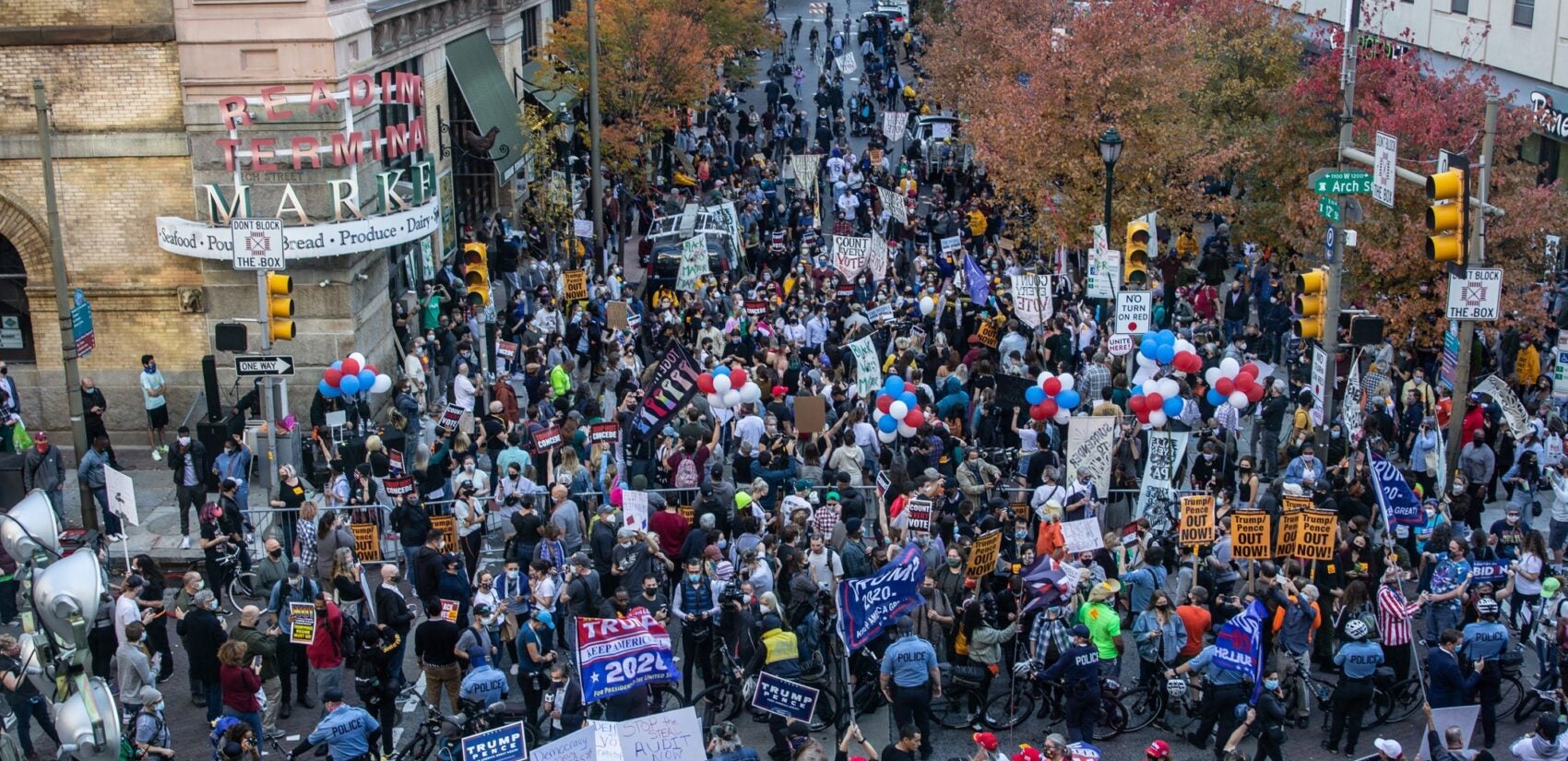
Celebrations exploded across the city on Saturday, Nov. 7, when major news organizations called the race for Joe Biden. Kamala Harris made history as the first Black woman and first person of South Asian descent elected as vice president of the United States.
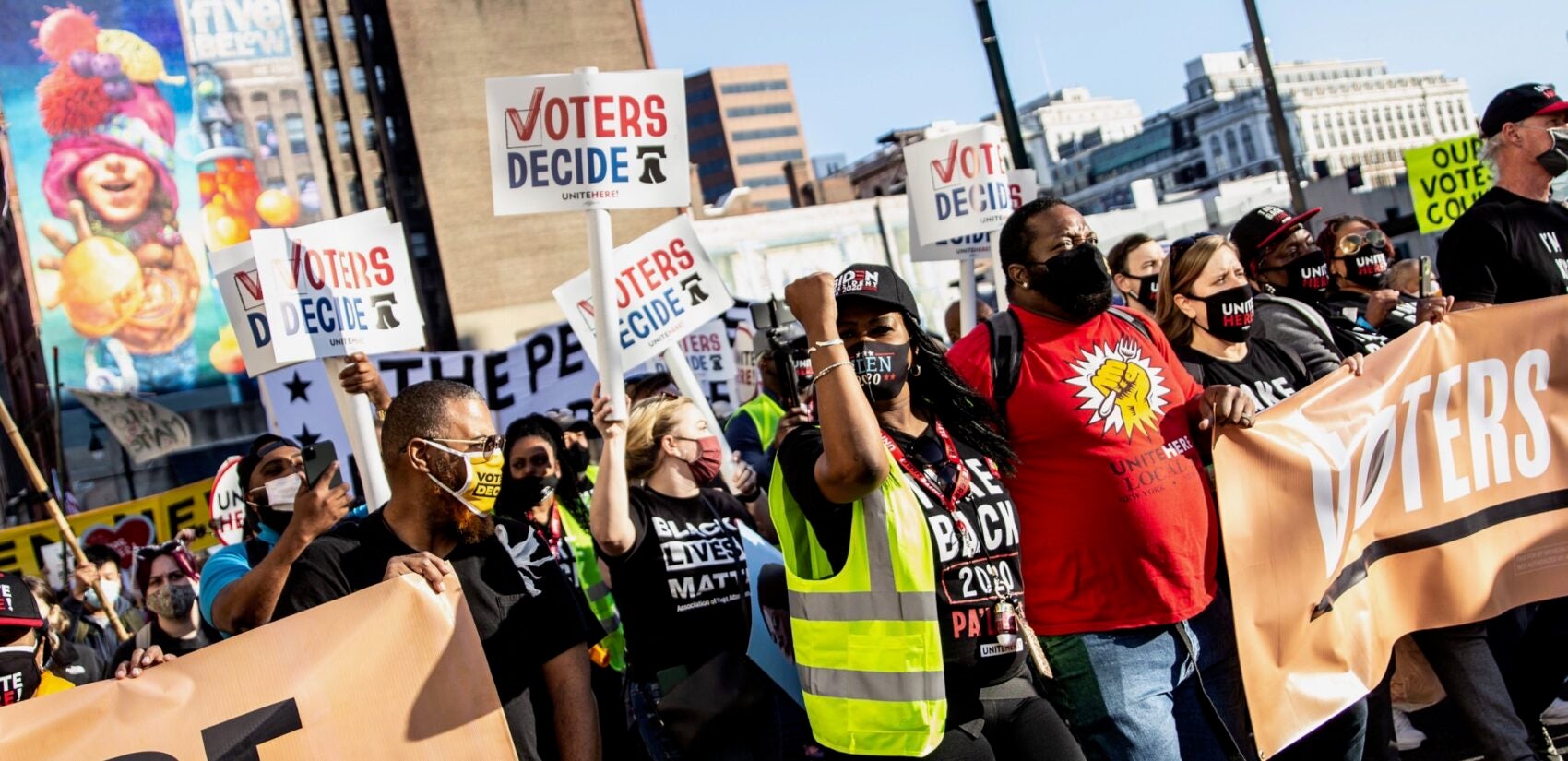

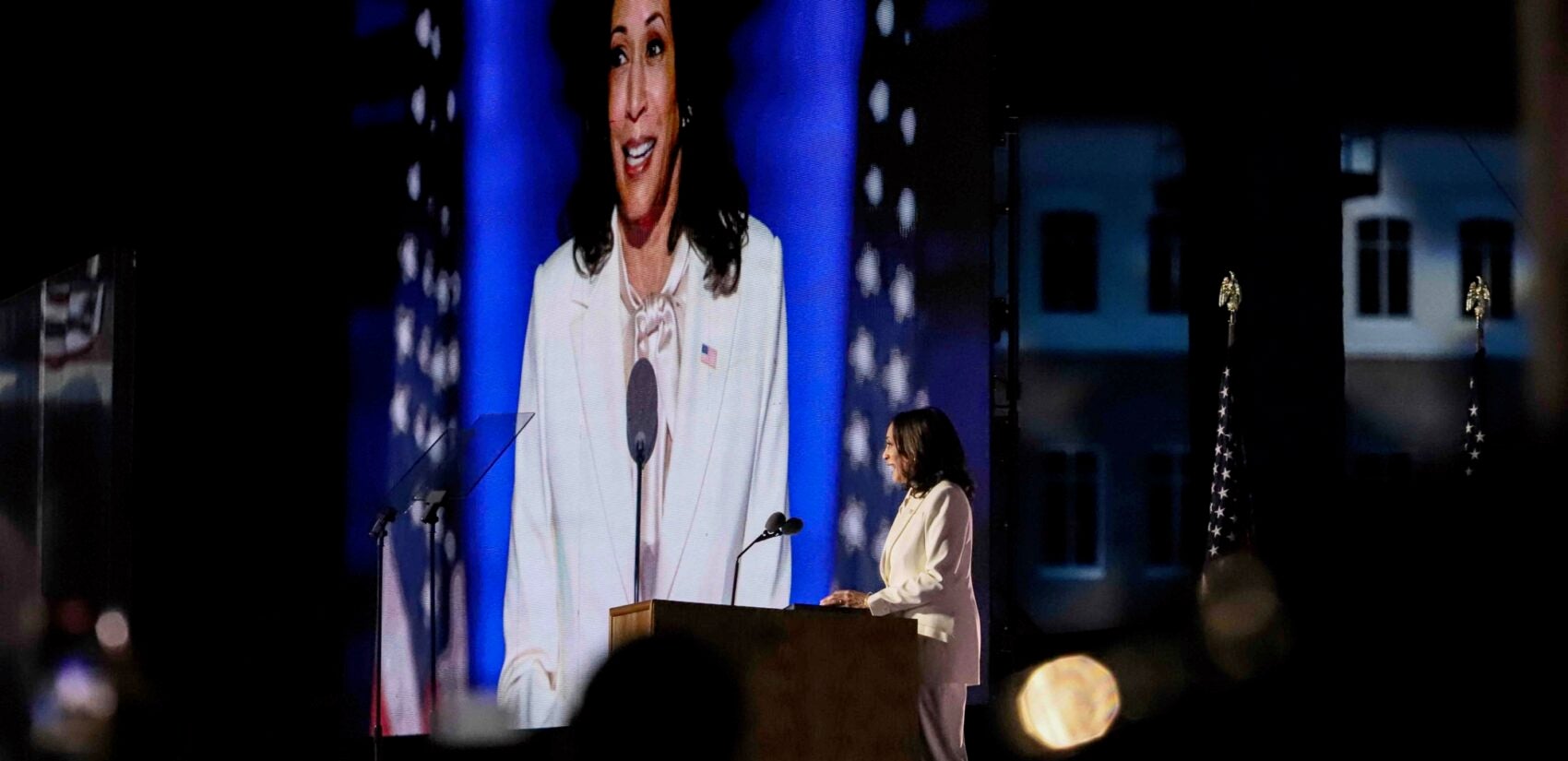
On Nov. 22, the shooting death of 12-year-old Sadeek Clark-Harrison brought Philadelphia’s homicide total to 440, the highest since the 1990s.

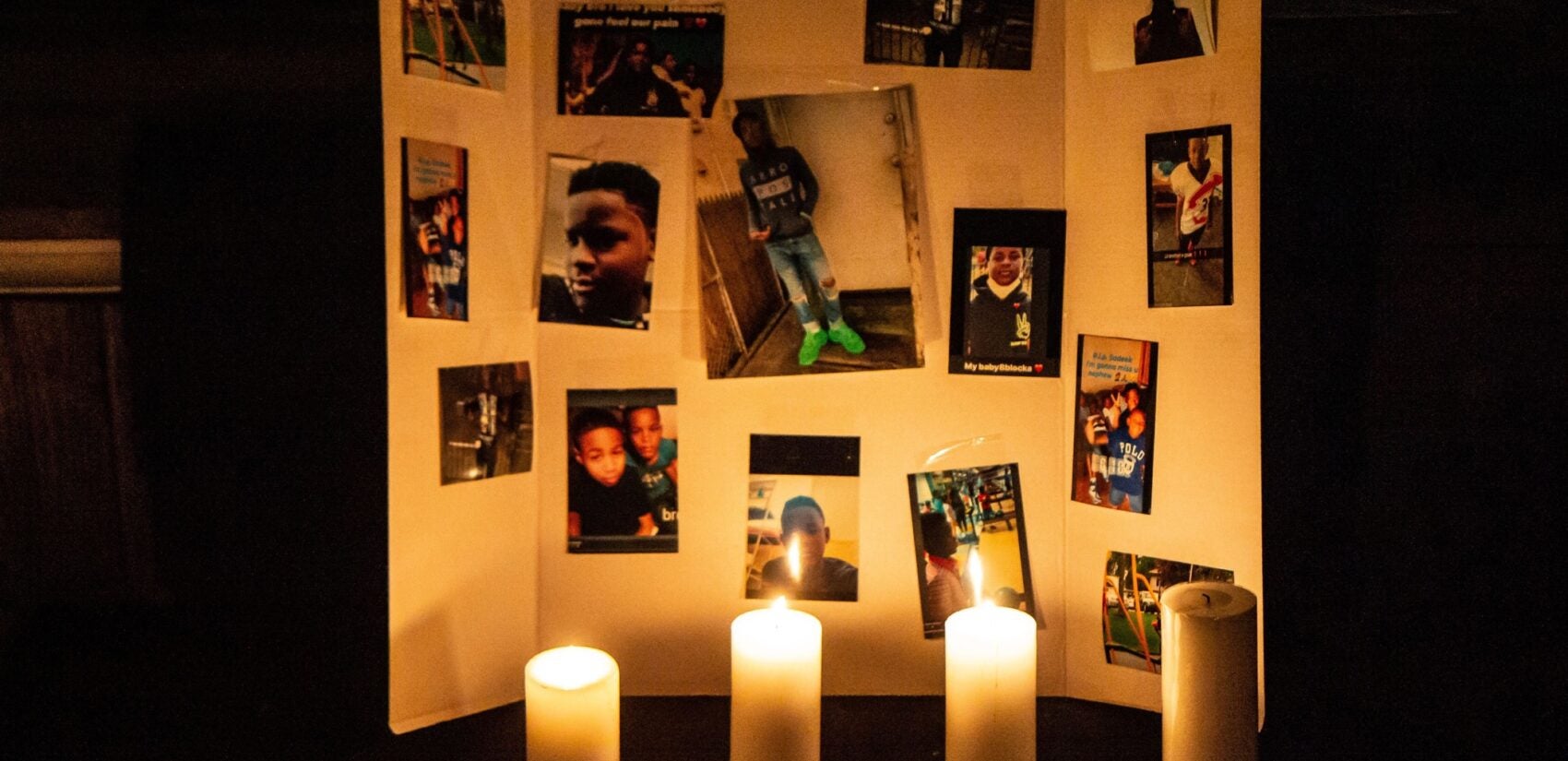
COVID-19 vaccines arrive
The first shipment of COVID-19 vaccines arrives in Philadelphia in mid-December. Dr. Ala Stanford, of the Black Doctors Consortium, is among the first to be vaccinated, publicly demonstrating her confidence that the vaccine is safe and effective.
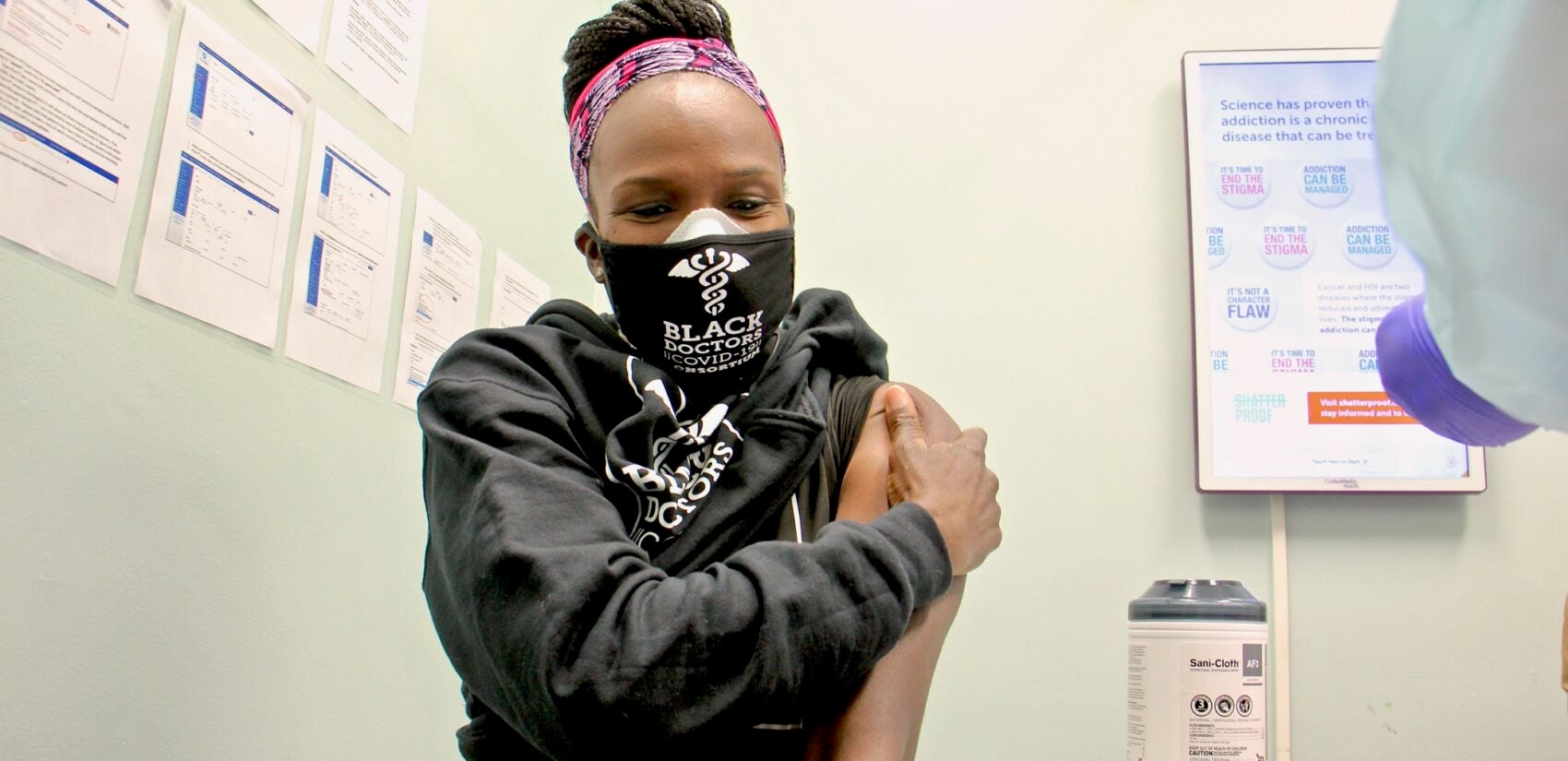
Winter holidays and COVID
With widespread vaccination still months away, Philadelphians found new ways to celebrate holiday traditions. West Philly synagogue Kol Tzedek held a virtual Hanukkah party. Taller Puertorriqueño’s parranda celebration, a gathering of friends who move through a neighborhood with musical instruments, singing traditional songs well into the night, was held online.
Philadelphia’s Christmas Village opened with a socially distanced layout, reduced vendor capacity, and new safety protocols.
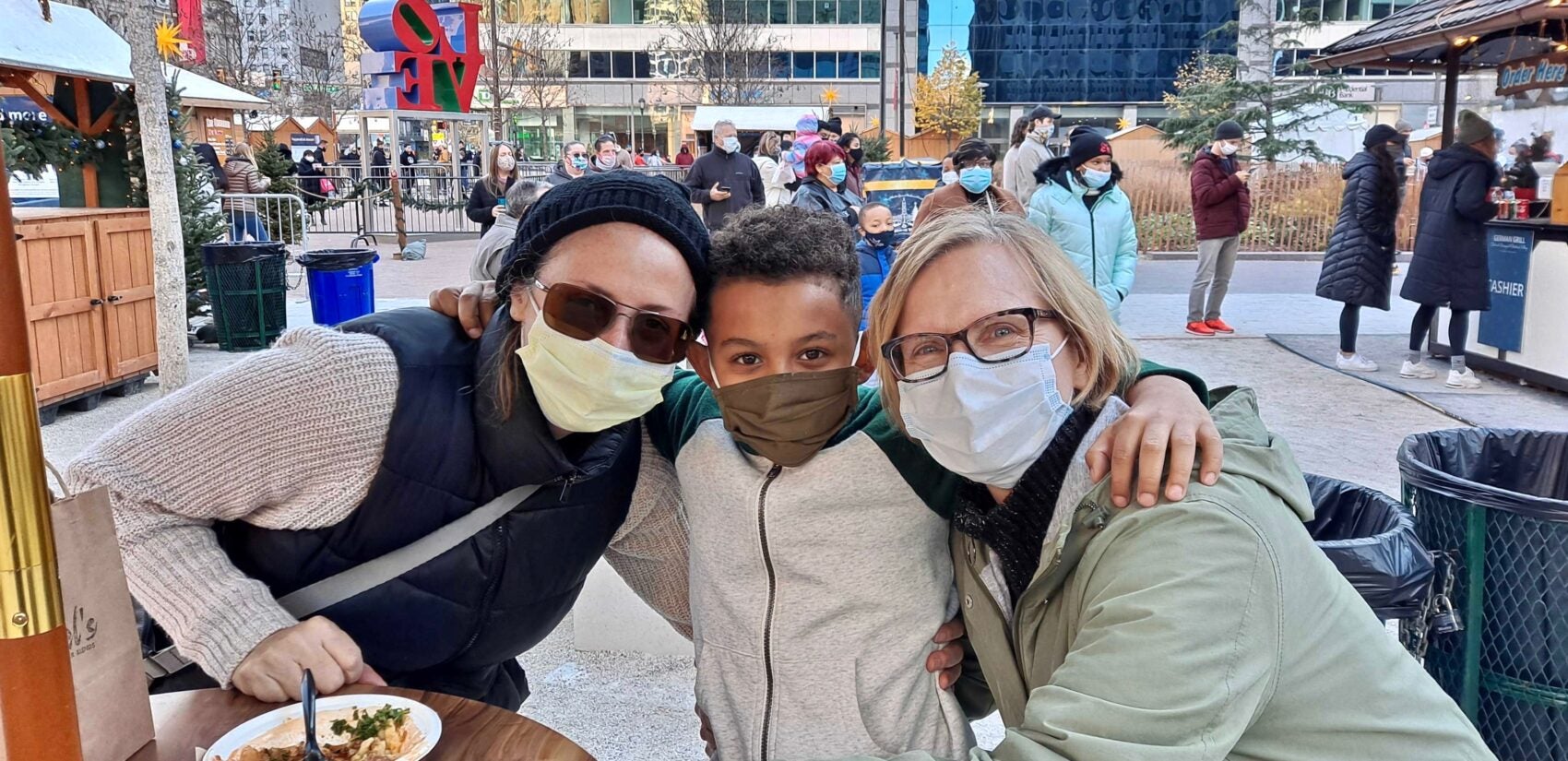

Get daily updates from WHYY News!
WHYY is your source for fact-based, in-depth journalism and information. As a nonprofit organization, we rely on financial support from readers like you. Please give today.



